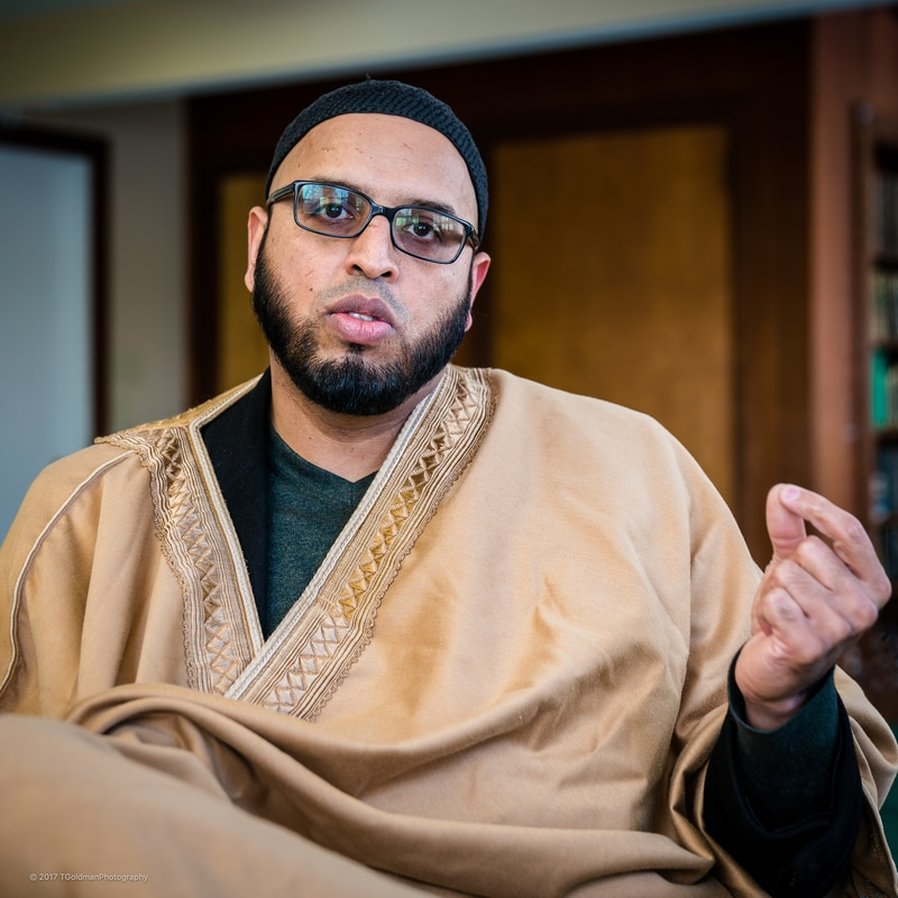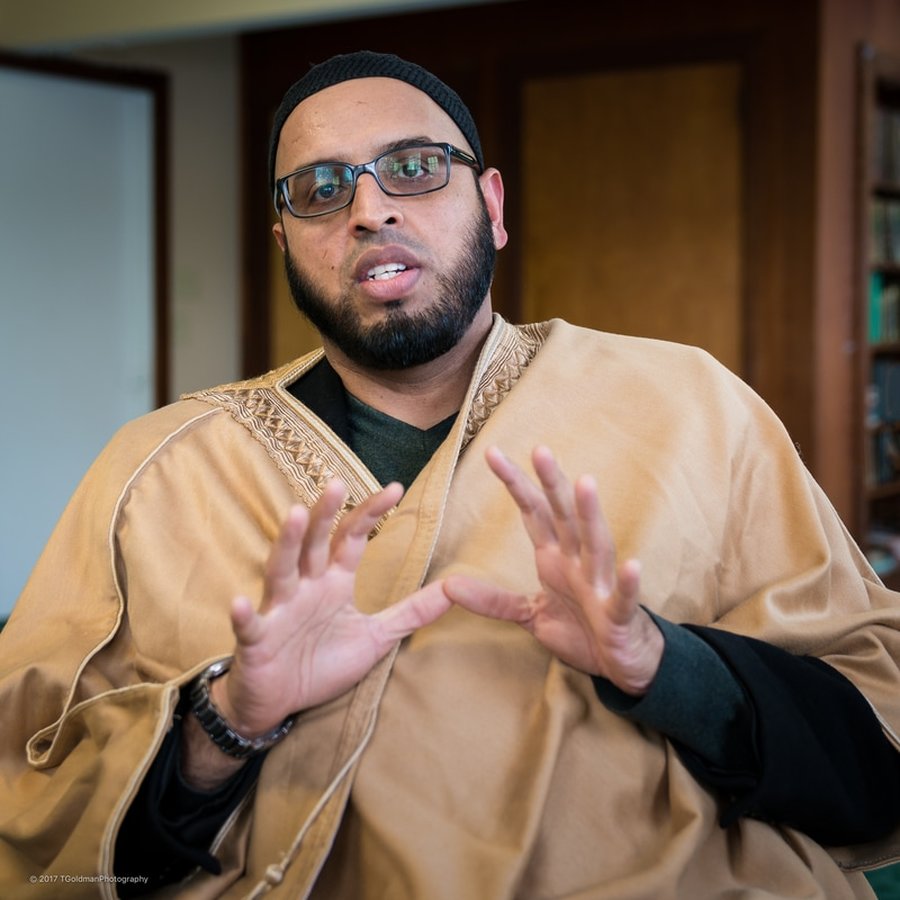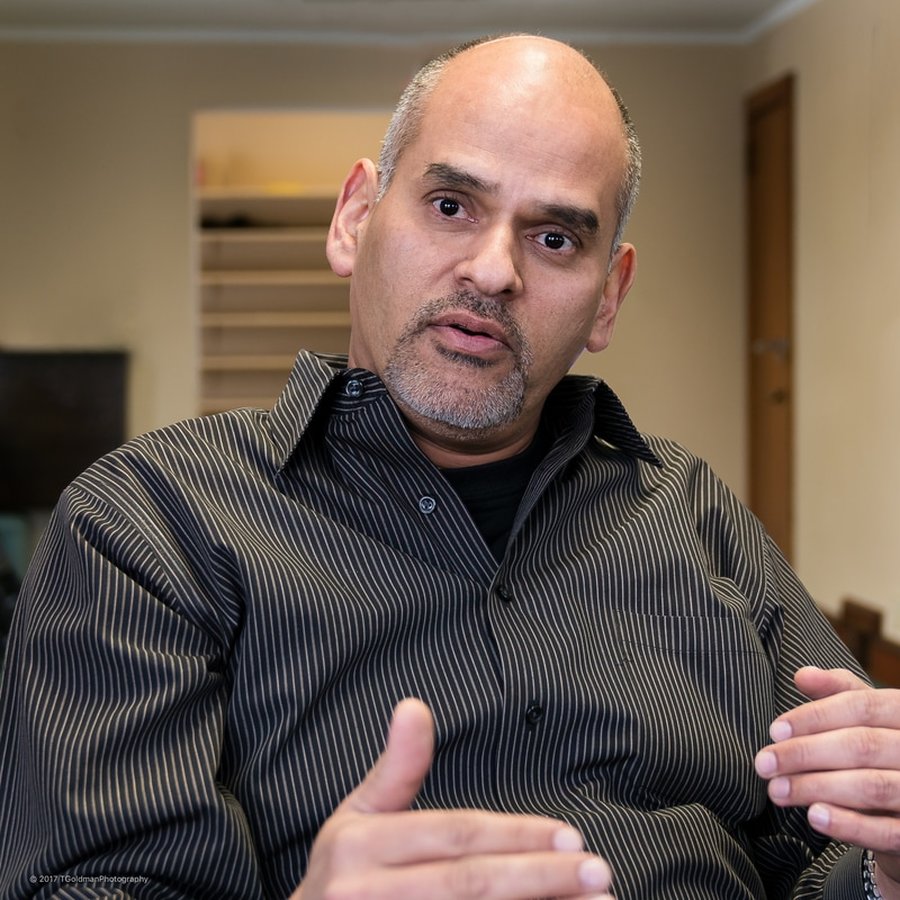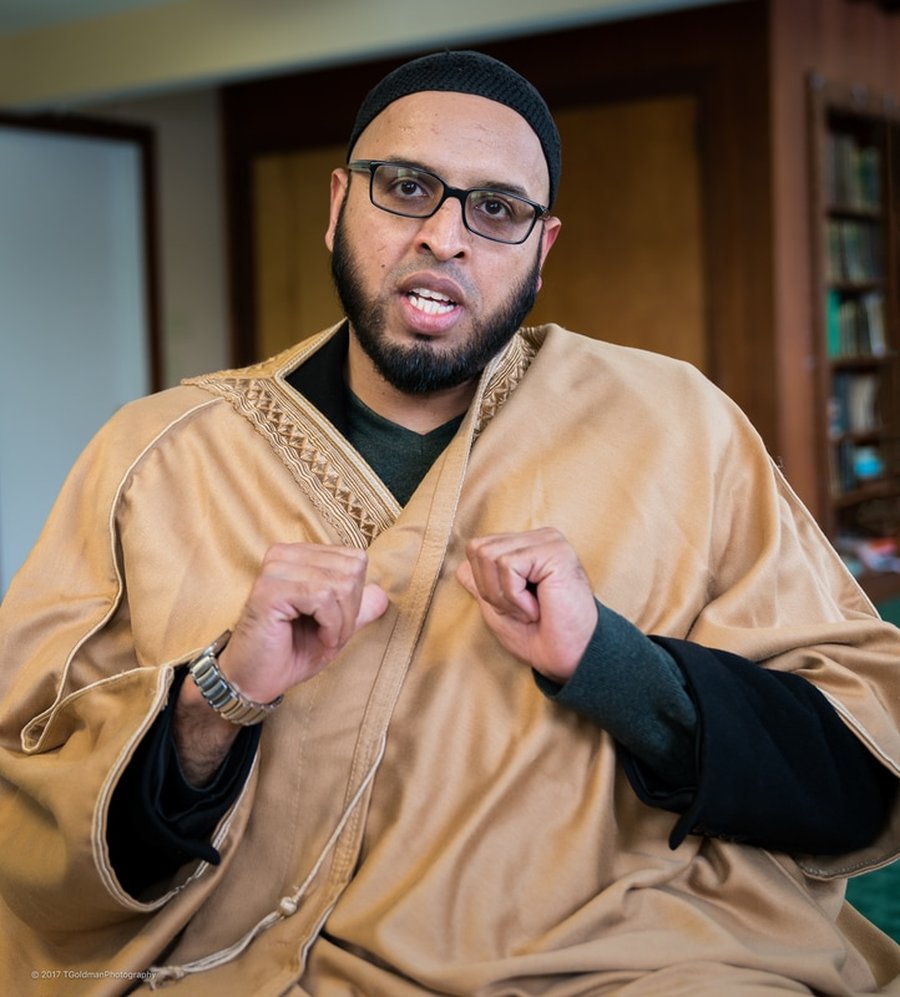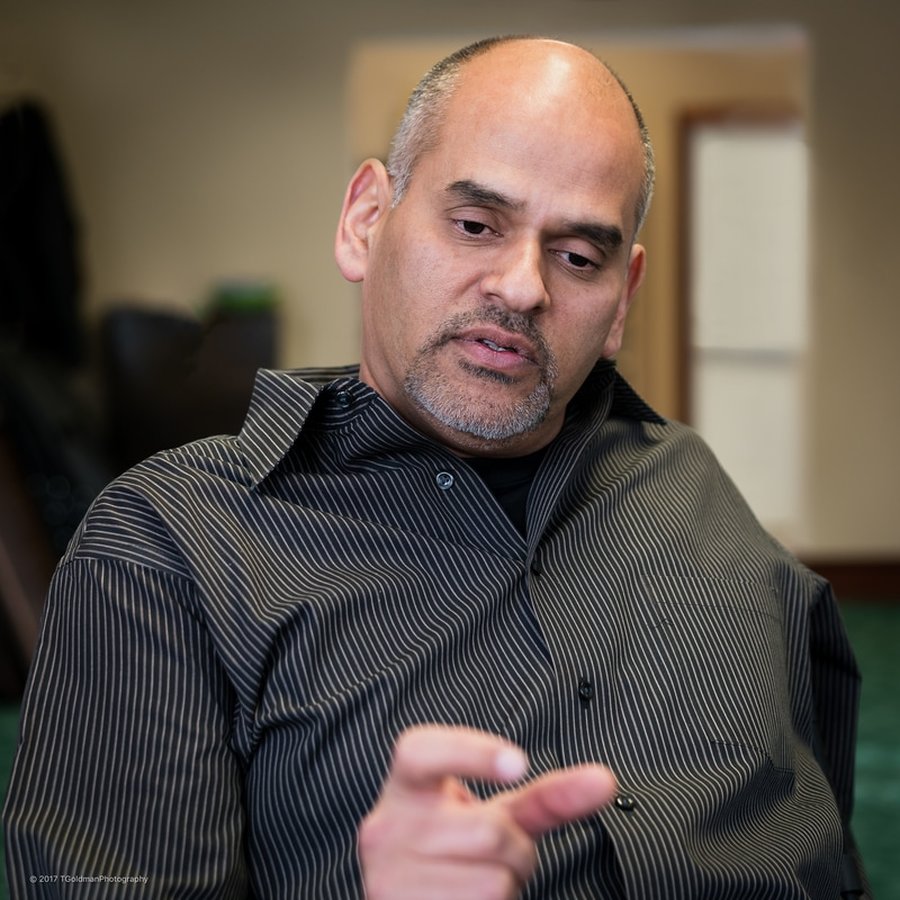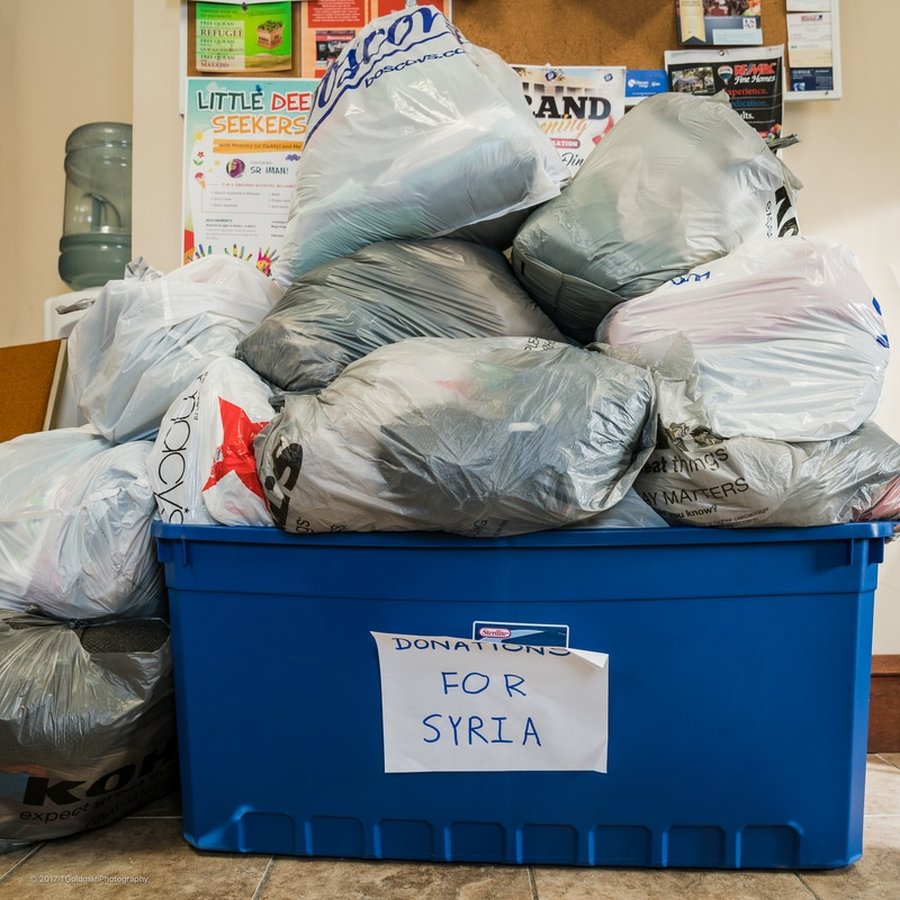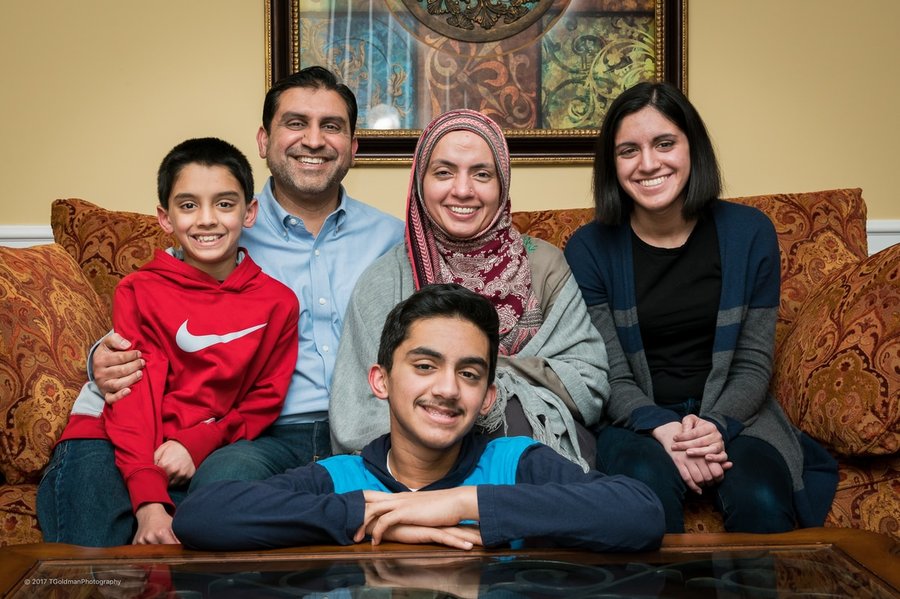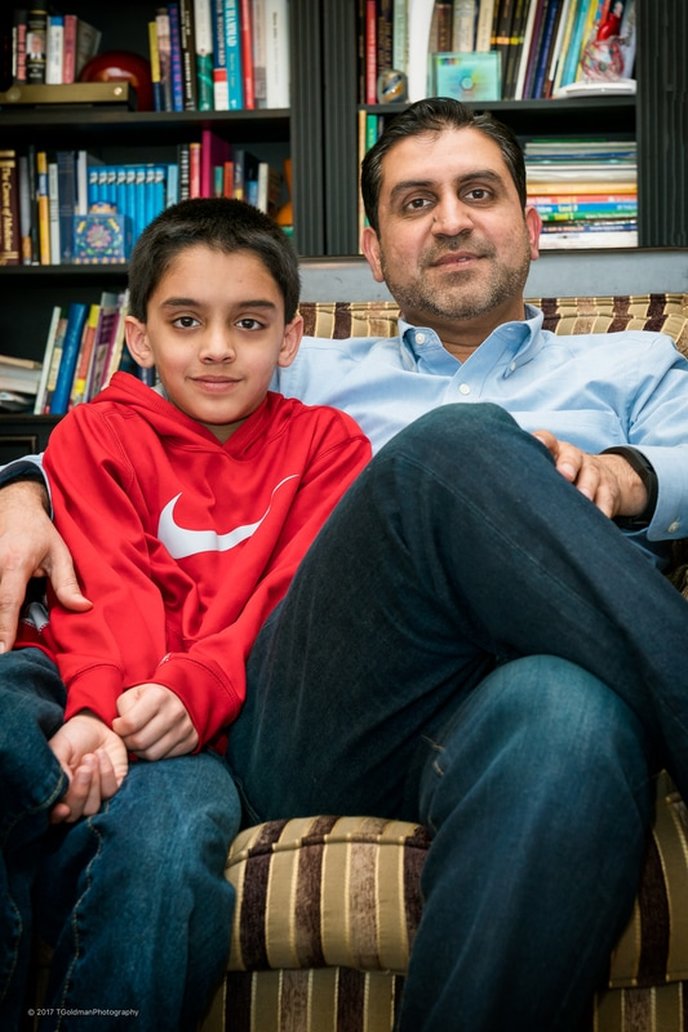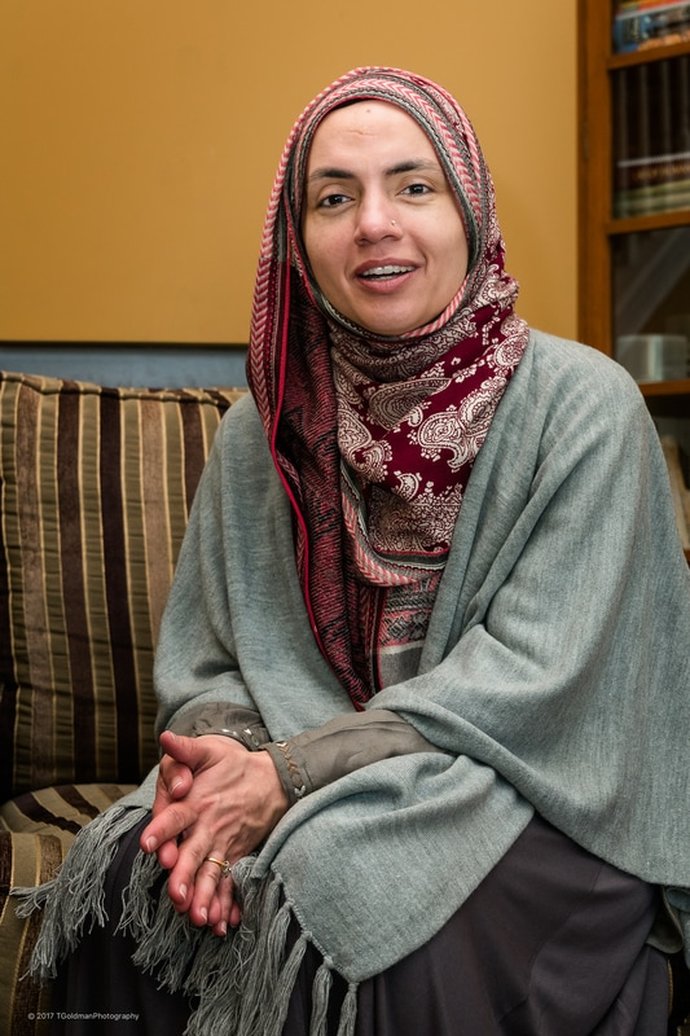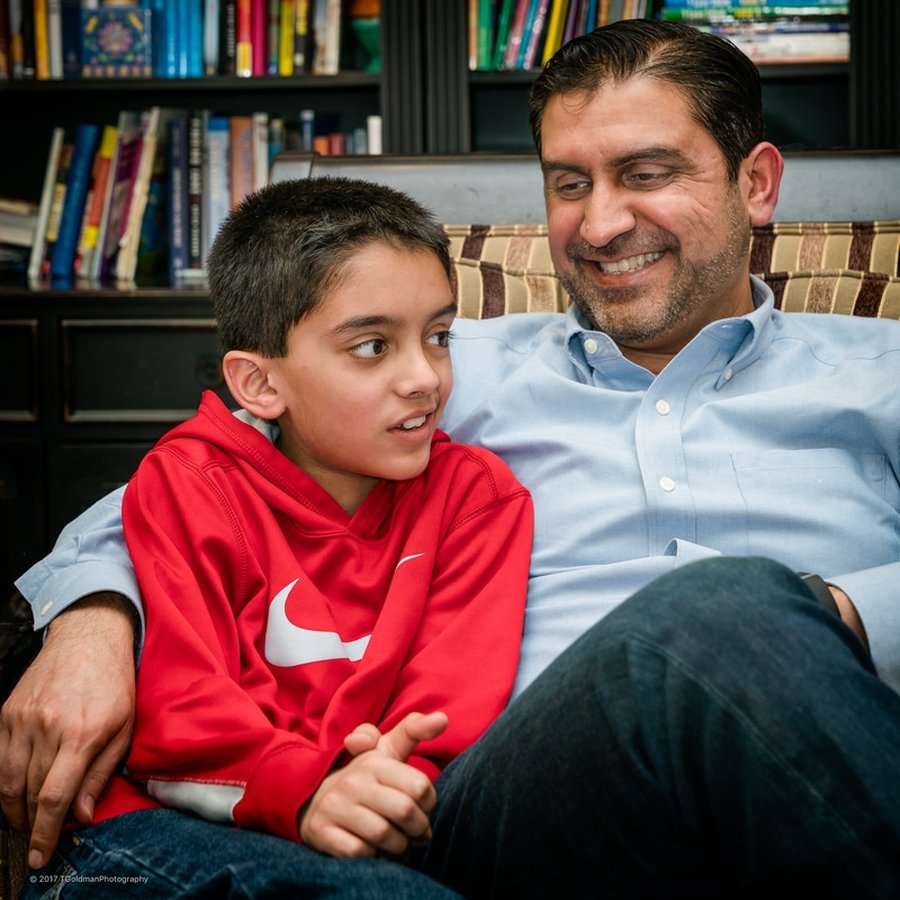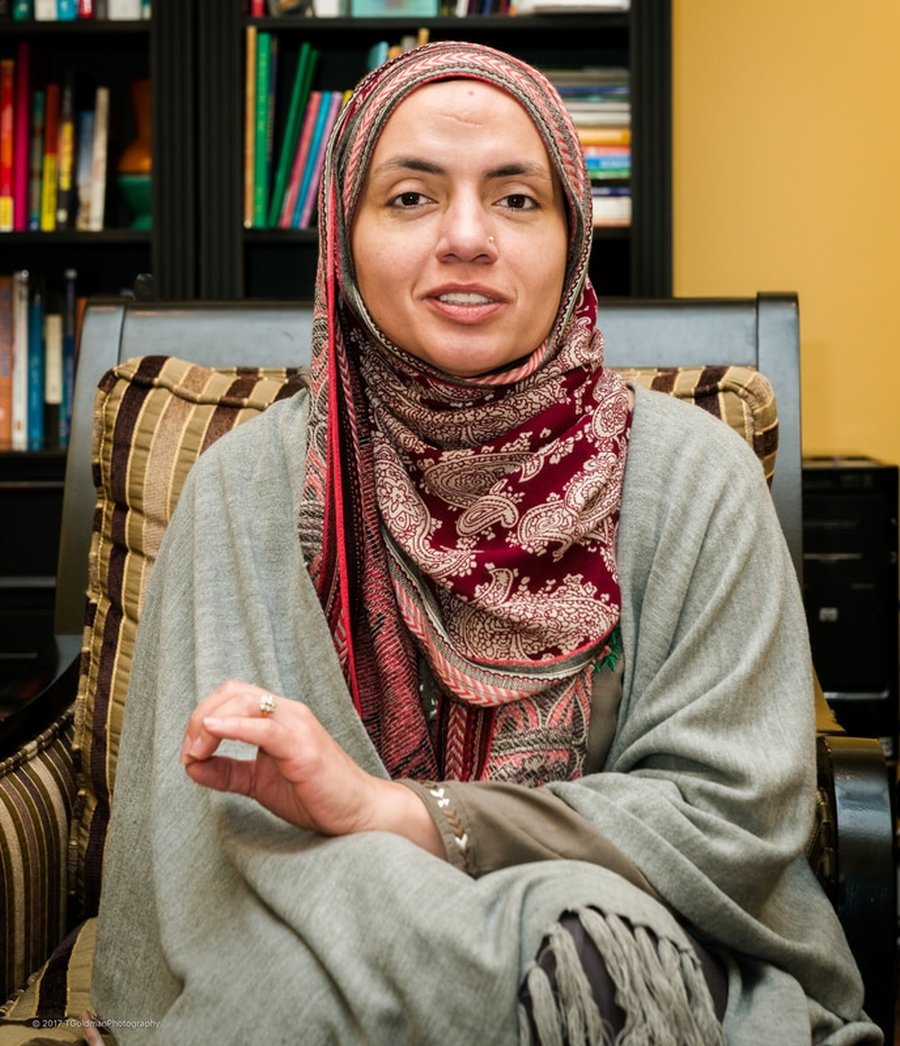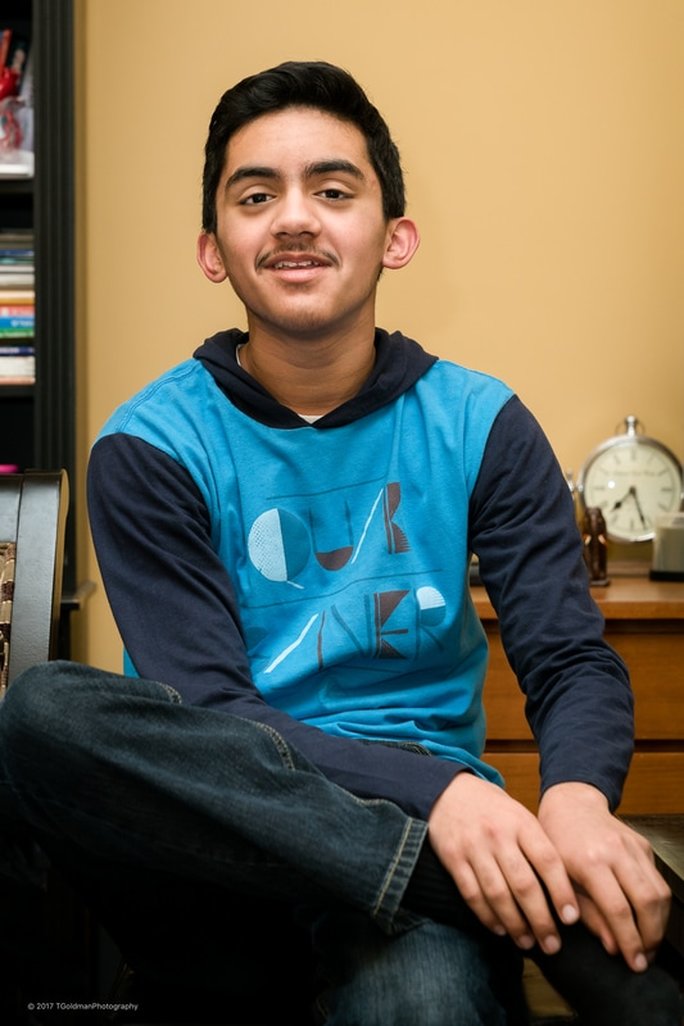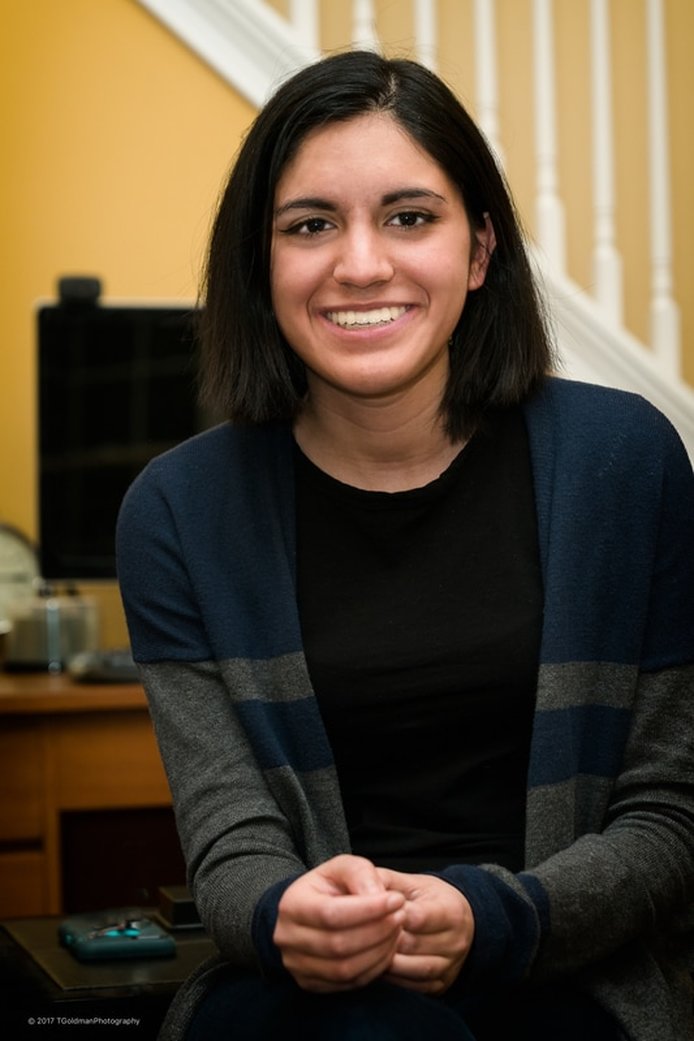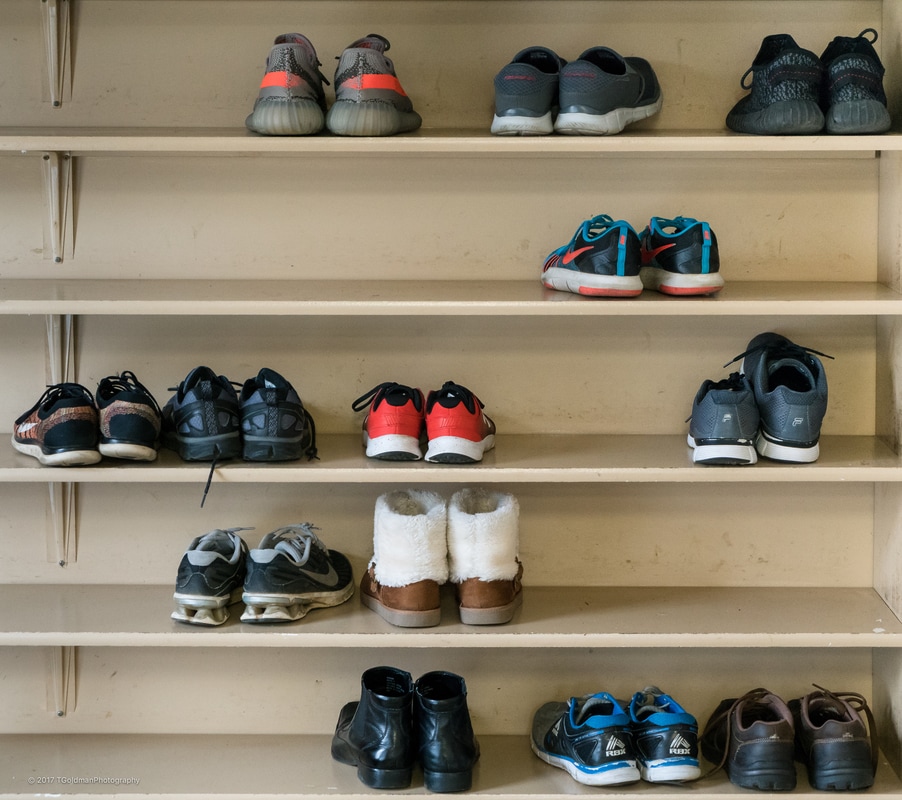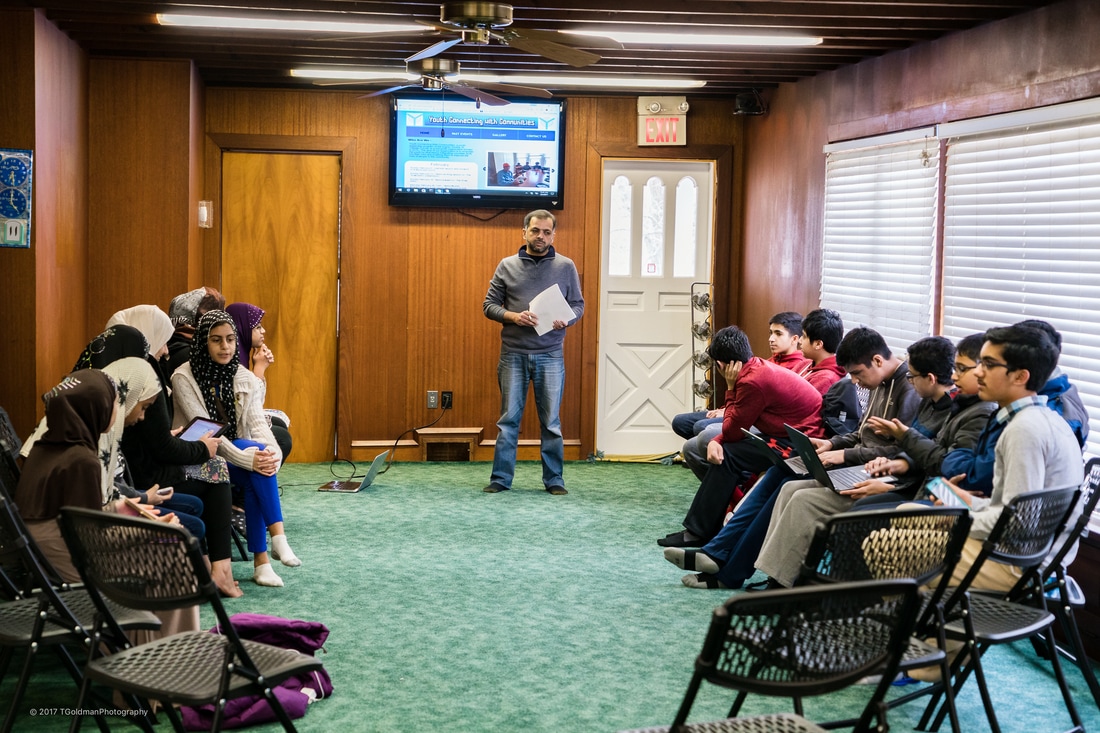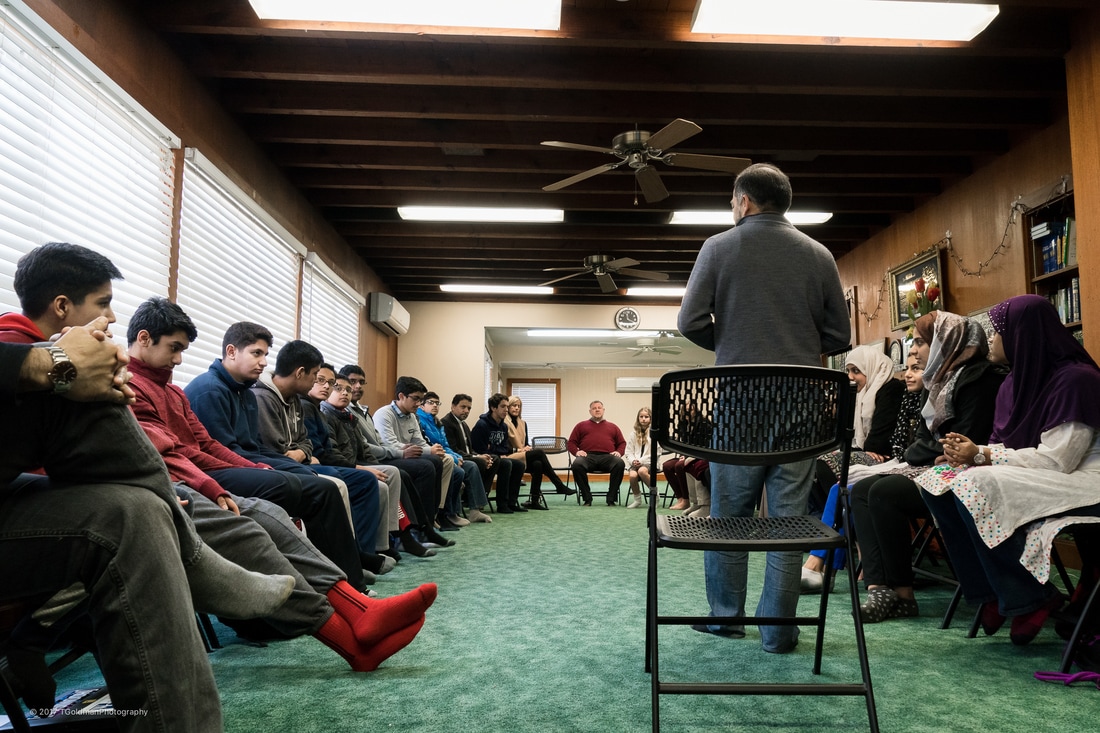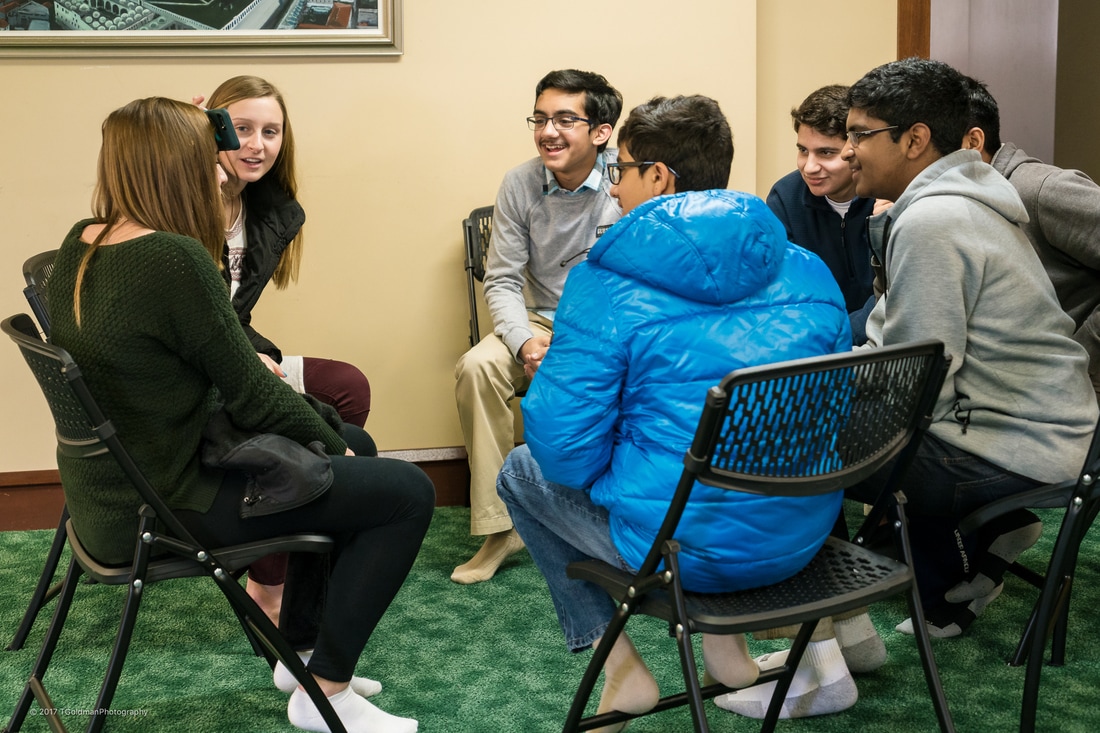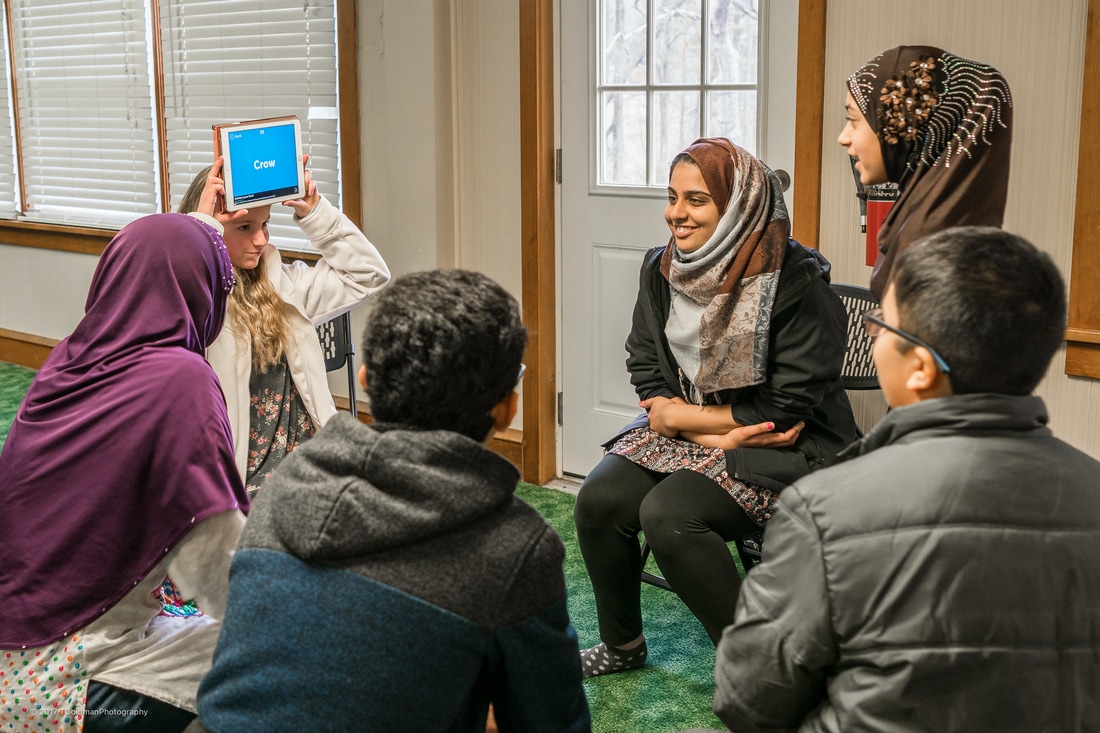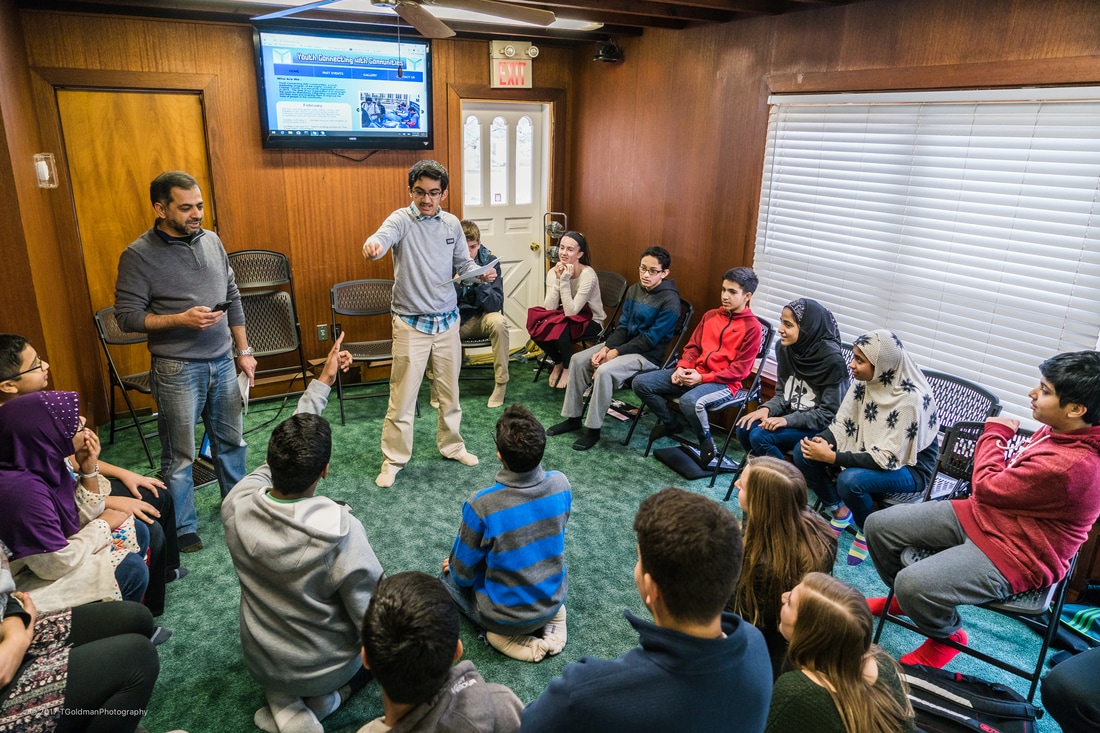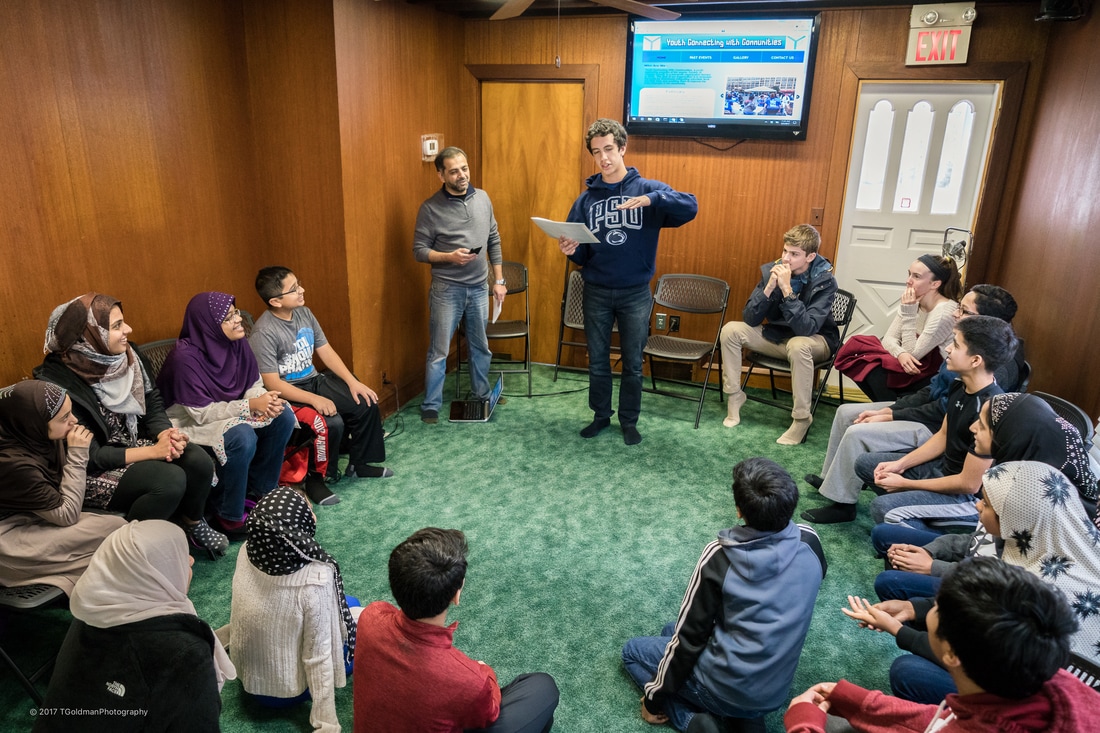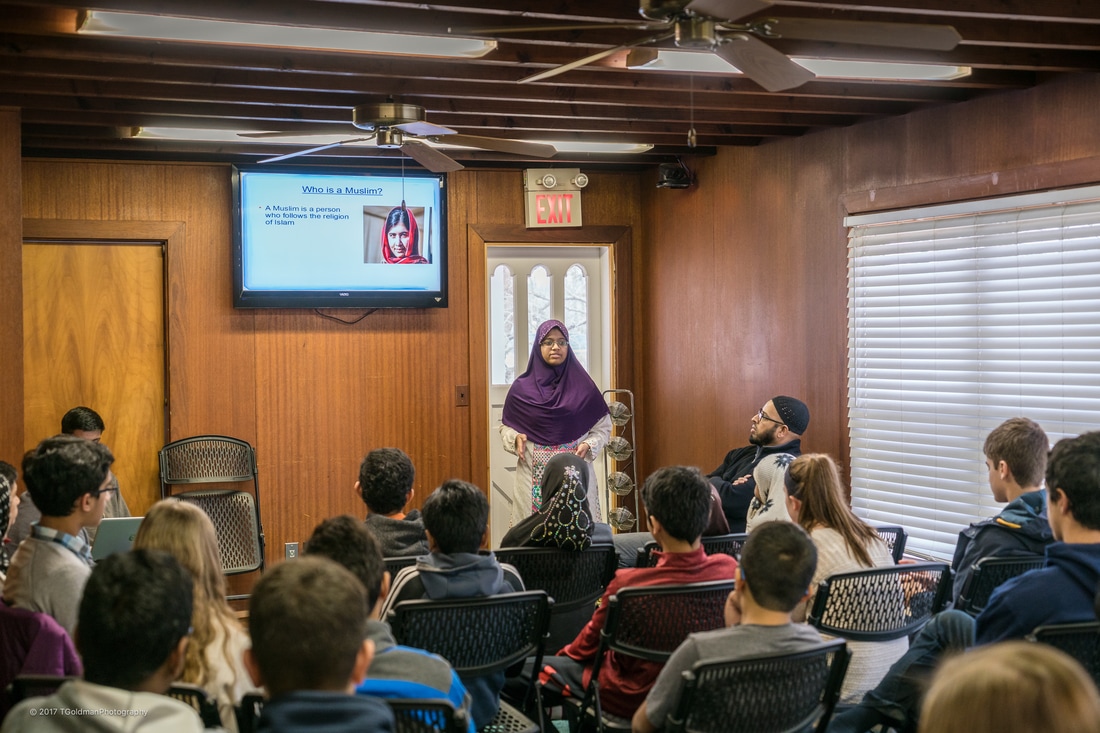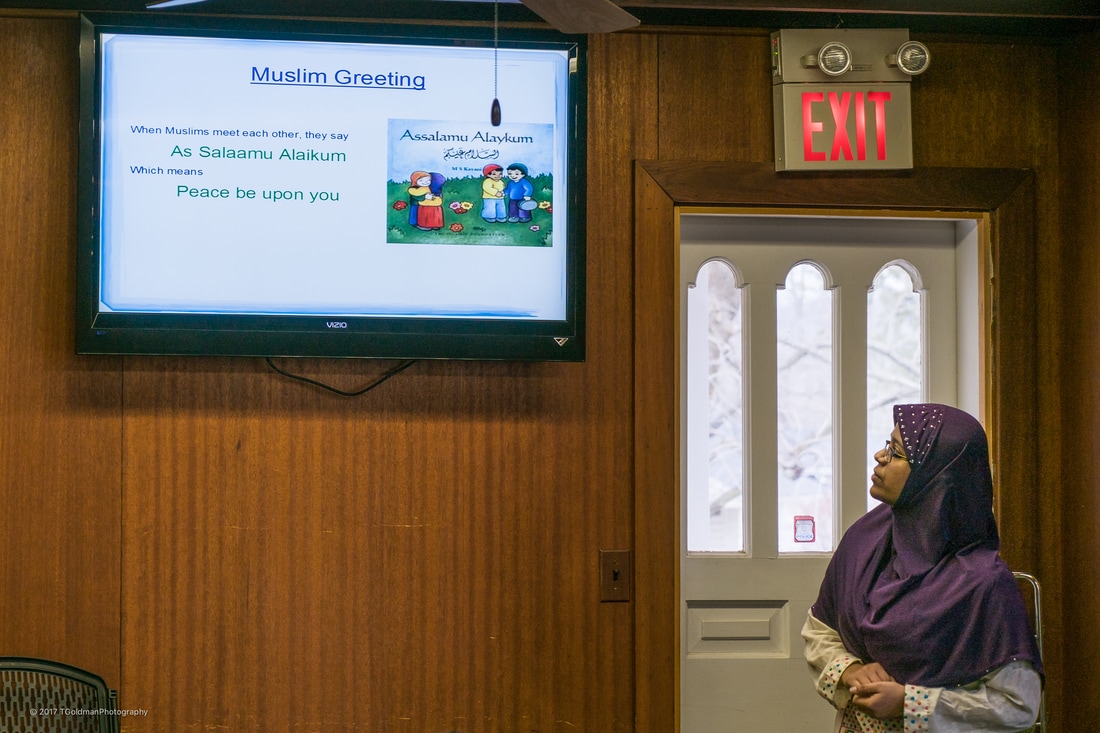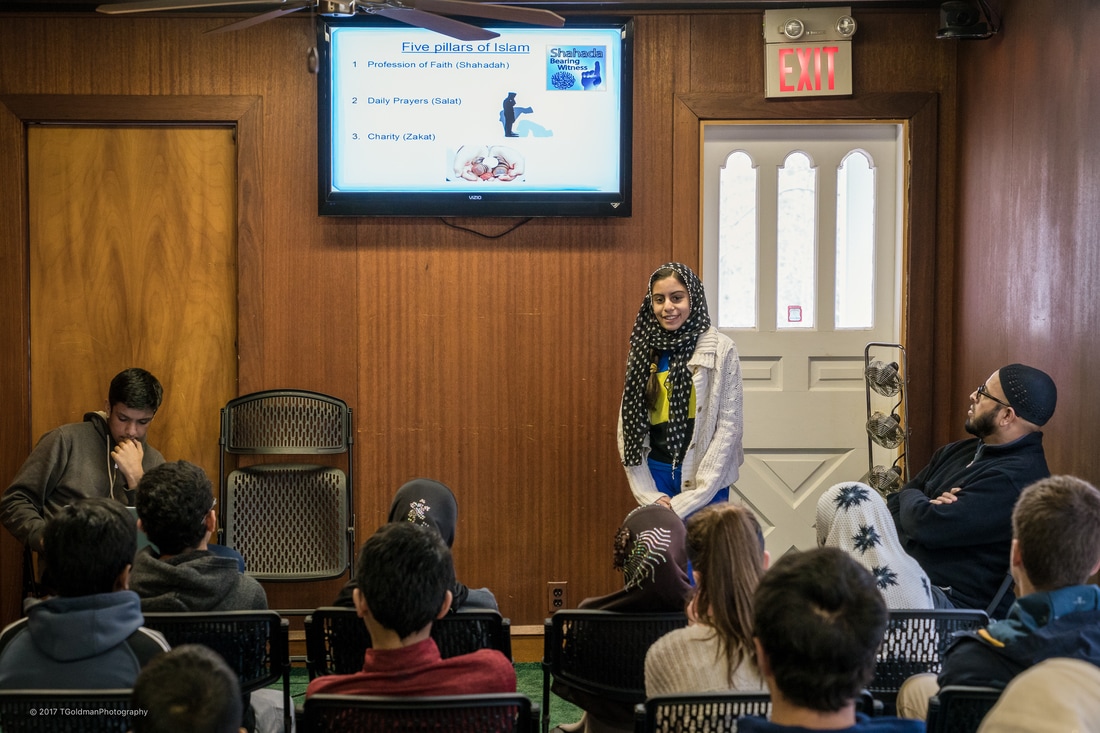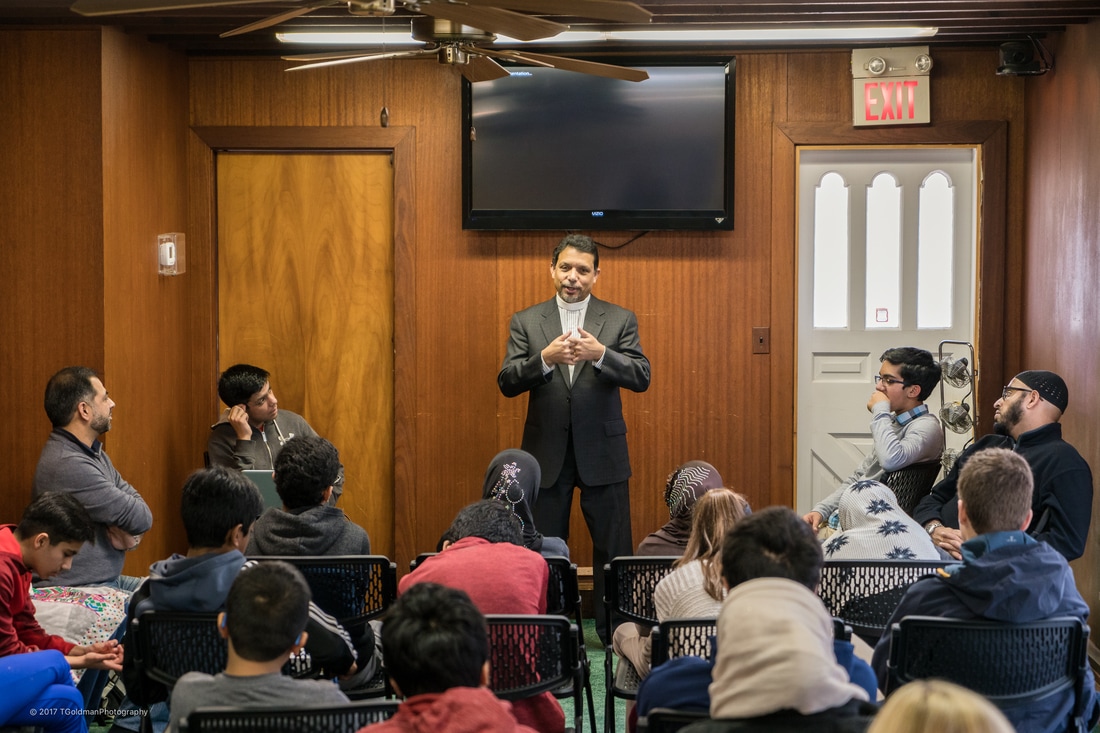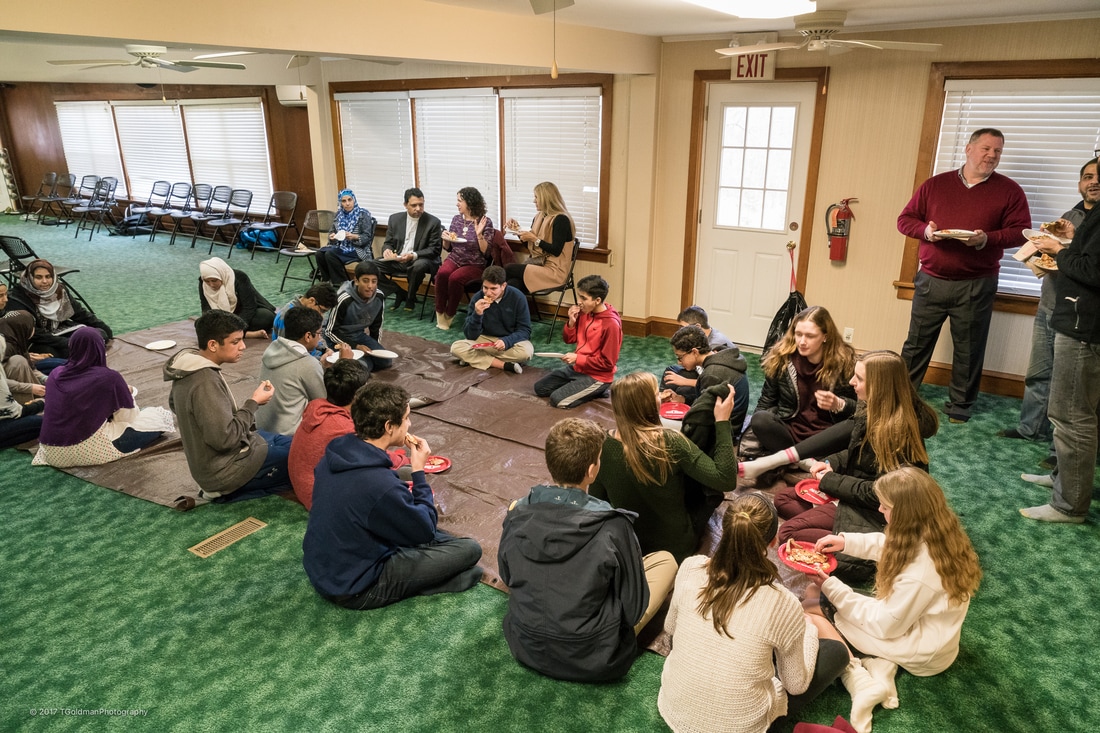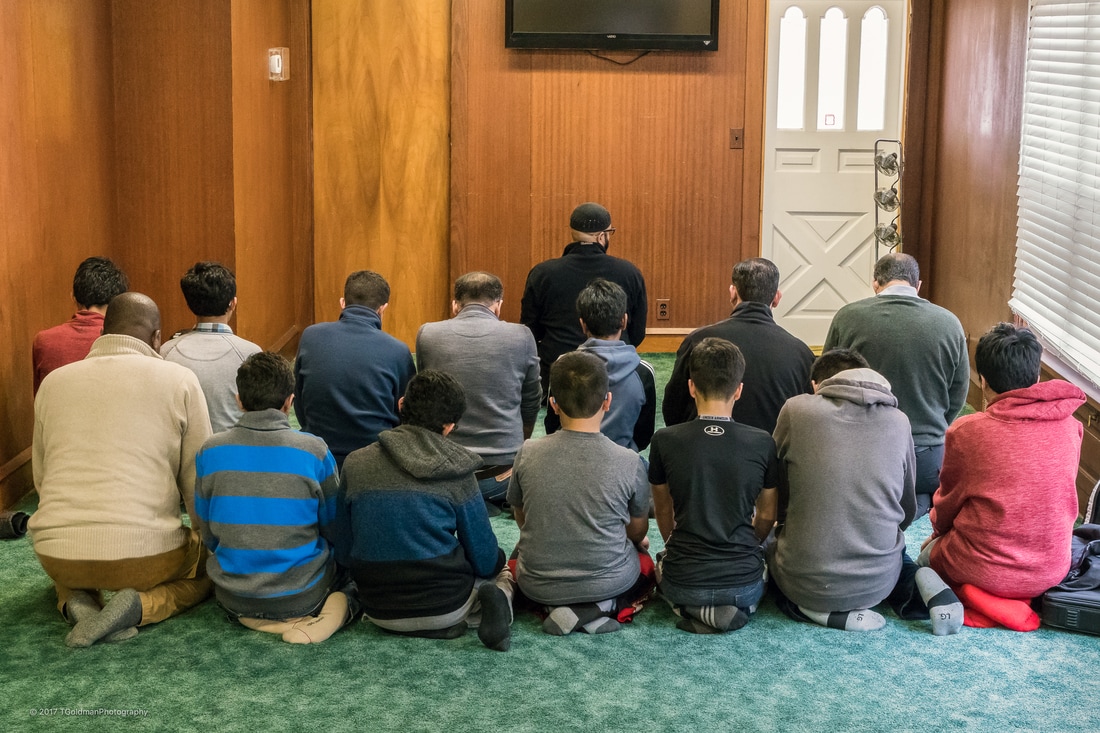Muslims: A Well Kept Secret
Preface
As far as I can remember, September 11, 2001 was the first time I became aware of Muslims. I’m sure I never heard the word Islam before that day. Even in the midst of the attack, I didn't have any reason to believe that the more than 1 billion Muslims in the world at the turn of the century were out to kill Americans- if so we would have been dead already. In the aftermath of the attack, President Bush spoke about Muslims to a joint session of congress on September 20, 2001- his words should be spoken today:
“I also want to speak tonight directly to Muslims throughout the world. We respect your faith. It's practiced freely by many millions of Americans and by millions more in countries that America counts as friends. Its teachings are good and peaceful, and those who commit evil in the name of Allah, blaspheme the name of Allah. The terrorists are traitors to their own faith, trying, in effect, to hijack Islam itself. The enemy of America is not our many Muslim friends. It is not our many Arab friends. Our enemy is a radical network of terrorists and every government that supports them.”
Shortly after the attack there was the controversy about a mosque to be built near ground zero. Was it good Muslims wanting to build a place of worship, or was it radical Muslims wanting to add salt to the wound? I had no idea what to think. This controversy seemed to be the beginning of blaming all Muslims for the attack.
Issues about Muslims went out of view when we invaded Iraq. There was the Taliban but they just seemed like total extremists and I really didn't think about them as Muslims- the news was focused on Iraq. This changed when we left Iraq and ISIS began their assault. They said: “Either be a Muslim or we will kill you”. This led to grizzly murders and suicide attacks. And then it hit politics- President Obama was being criticized for not naming the enemy and not going after it effectively. There was the birther movement which not so subtly suggested the reason President Obama wasn’t going after ISIS was he was a Muslim, as if that would have been a bad thing. And then came the 2016 presidential campaign which targeted both Mexicans and Muslims as people who were out to get us- which I never believed for a second.
The problem is that since 9/11 we haven’t had much positive information about Muslims. Continued bad news has a way of wearing you down, drip by drip, stoking fears. So the combination of negative news, occasional terrorist attacks, and campaign rhetoric, made me suspicious of what I didn't understand about Muslims. This became the trigger for doing a photo essay because my criteria is that the topic is important and people need to know more about it. Understanding Muslims couldn't fit this criteria any more perfectly.
The first time I thought about approaching a mosque to do a photo essay was after candidate Donald Trump called for the shut-down of Muslims coming into the United States. This made me fearful about how Muslims would be treated. But I backed off out of a feeling of uncertainty. I was uncomfortable because the only information I was getting about Muslims was bad information, even though I knew it couldn't all be true. But as the inauguration approached and I again feared what could happen to the Muslim community, I went on-line to find a local mosque. When I approached the Islamic Society of Chester County (ISCC; www.isccpa.org) on Jan 14, 2017 about doing a photo essay, I didn't know what to expect. I thought they might be suspicious of my motives: “What’s this guy up to?” To my surprise and amazement, all of my perceptions and uncertainties about Muslims just melted away. If you don't know the Muslim community and wonder what Muslims are really like, read on- they are “A Well Kept Secret”.
Introduction
This photo essay is not meant to be a scholarly study of Muslims and of their religion, Islam (“Submission to God” ). That would be way outside my skill set. This is about getting to know Muslims face to face as real people. With so much in the news that seems to demonize Muslims, or at least put their motives in question in a way that inspires fear, this photo essay is about demystifying Muslims and bringing their humanity into the light.
This story is based on my two month experience with the ISCC. I attended several prayer sessions, a fundraising banquet for feeding the hungry, an interfaith youth group, a family night dinner, and I conducted interviews with ISCC members and a family. My purpose is to create openness in non-Muslims to think beyond the unending bad press and to consider reaching out to the Muslim community to find out what these people are all about. I cannot say my small experience defines all Muslims everywhere- there is a wide range of Muslim cultures around the world. Surely no one would say all Jews are the same or all Christians are the same, and there is good and bad in every group. But for more than fifteen years, Muslims have been in the crosshairs with sweeping generalities like those made in the recent campaign, or direct accusations such as made by General Michael Flynn, former National Security Advisor to the Trump Administration. He asserted that Islamism (the application of Islamic teaching to government) is a vicious cancer inside the body of 1.7 billion people that has to be excised! Does such language remind you of anything from the last century? I hope it does.
No amount of research could have prepared me for what I experienced when I met Muslims for the first time. I surely can’t translate that to the written word. It would be like trying to describe the taste of a fresh strawberry to readers who have never tasted one. Real understanding requires human connection and that’s what is required to really know Muslims. More contact between Muslims and non-Muslims would go a long way to reducing suspicions that have been fueled by so many events and damaging rhetoric since 9/11.
This photo essay has five parts:
- Introduction to The Islamic Society of Chester County
- Separating Islam and Mainstream Muslims from Terrorism and Brutality
- The Warmth and Generosity of Muslim People
- Muslim Home Life
- Bringing Muslims and non-Muslims Together
The Islamic Society of Chester County
The ISCC is a great example of a successful grass roots effort. It was founded in 1978 “to provide facilities and an environment where Muslims of Chester County and surrounding areas, could perform congregational prayers.” By 1994 with just twenty four families, the ISCC purchased a small home which they converted to a mosque, a Muslim place of worship. Today they have grown to over one hundred families and have plans to build a new mosque.
The ISCC has many objectives that serve the Muslim community. Most relevant to this story is their outreach program: “Presenting Islam to the followers of other faiths and promoting goodwill between Muslims and non-Muslims”. They believe the only way to have non-Muslims really know Muslims is from direct connection between people.
Separating Islam and Mainstream Muslims
from Terrorism and Brutality
Had I just launched into the excellent experiences I’ve had since meeting the people of the ISCC, I would have ignored the proverbial elephant in the room: non-Muslims are confronted with a brutal image of Muslims and of Islam. I needed to address this directly: What do Muslims believe in; Does Islam condone and promote brutality and terror?
My teachers were two members of the ISCC:
- Abdul Mughees, Vice President of Sales at Harman Kardon, and Chairman of the Board of the ISCC
- Ejaz A. Sabir, Attorney at Law, Sabir Law Group, member of the ISCC and prayer leader
Abdul and Ejaz graciously answered all of my questions without hesitation. They acknowledged the Muslim community has not been able to get enough positive information out to non-Muslims. This photo essay offers an opportunity.
Why did they come to the United States? Most adult Muslims are first generation- they are immigrants. Abdul came to this country from Pakistan in 1997 and became a citizen in 2008. He has a wife and two daughters in college. Ejaz came to this country from Kashmir in 1993 and became a citizen in 1999. He has a wife and three young children. They both agree the U.S. is a special place built on immigrants where people are free to practice their religion, there is diversity, and if one works hard they can achieve their dreams. Both have successful careers and families focused on the education of their children, along with living their faith. They did not come here to disrupt U.S. politics or insight radical thinking. They are American citizens and very proud of it: “As a practicing lawyer, I defend the laws of the land every day.” (Ejaz)
What do Muslins believe in? Still wearing his robe from delivering the Friday sermon at the mosque, Ejaz explained that Muslims believe in just three things: “It’s simple and that’s why Islam is growing so fast.”
- “There is only one God- Allah, the same God that Moses and Abraham had; there is no son, no daughter.”
- “God sent messengers- it started with Adam, Muhammad was the last; some messengers came with a book: the Torah for Moses; Gospels for Jesus, Scrolls for Abraham; Qur'an for Muhammad.”
- “Every Muslim believes they will die and will be judged by God Almighty based on faith and good deeds: ‘Did you follow the messenger (Muhammad)? Did you do good deeds?’… If you lived with faith and did good deeds, you will live happily in the here-after, and if you didn’t, you will face the consequences.”
From the non-Muslim’s perspective, the third point is most important because it directs Muslims to do good in this world. While it’s true all religions promote good deeds and charity, my experience in getting to know Muslims at the ISCC is that they are absolutely driven at their core to do good. This is not a human trait which leads to terrorism and acts of brutality- but just the opposite.
Ejaz further explained that doing good deeds is contained within the Five Pillars of Islam- the framework of Muslim life :
- Shahada: declaration of faith and trust that there is only one God (Allah) and Muhammad is God's messenger.
- Salat: five daily prayers- dawn, noon, afternoon, evening, night… “Muslims pray at the mosque to find out what’s going on in the community and to see who needs help.”
- Zakāt: annual giving at 2.5% of total wealth. Muslims believe all wealth belongs to God and people possess it in life to do good for others… “Charity is so that you are thinking about the poor.”
- Abdul added: “The faith drives the action to give back; the Qur'an says to spend in the name of your God and you will get back 70-700% on what you spend- sent forward in your life for your day of judgement… The top of the list in the Qur'an is taking care of orphans, hungry and needy… In the Muslim community, if you put out a call that someone needs help, the response will be one hundred times stronger than in any other community- trust me because it’s engrained in the faith.”
- Sawm: ritual fasting during the month of Ramadan which commemorates the first revelation of the Qur'an to Muhammad; Muslims must abstain from food and drink from dawn to dusk during this month… “When you fast you are experiencing what hunger feels like.”
- Hajj: every able-bodied Muslim is obliged to make the pilgrimage to holy city of Mecca in Saudi Arabia at least once in their life. (Mecca is the birthplace of Muhammad and the site of Muhammad's first revelation of the Qur'an)
What do Muslims believe about non-Muslims:
Ejaz: “While God created people as a single group, Muslims assume there will be other faiths; we have to get along with them and compete to the best of our abilities to do good deeds for the time we stand in front of God.” (Quite a contradiction from terrorists who compete to do the worst deeds.)
But we hear from terrorists that any faith except their particular brand of Islam is grounds for execution. This opened the key point which was there is Islam in its pure form and there are political misinterpretations.
Ejaz: “Any such statement is a misquote of the Qur'an, just as the Bible has been misquoted; so we have to understand the Qur'an says we have all been created from a single soul, Adam- we are all his offspring; we are all brothers, so we have to treat each other equally; we have a responsibility to identify when the scripture is misquoted and misinterpreted for political reasons… This is not the first time such misinterpretations have happened- Jews have done it; Christians have done it.”
What is Islam’s view of social justice?
Abdul: “The basic concept in Islam is that everybody is created equal- there is no person based on their race, ethnicity, nationality that is better or above you; if you go to the basic level of the Qur'an, you are not even allowed to make fun of someone because it will make them feel inferior to you; social justice is at the top of the list for Muslims… On the day of judgement, the judgement will be based on how you lived your life; doing good deeds towards people, treating people equally, treating people with dignity and honor- that’s social justice.” (Such a belief system could not support terrorism.)
But we see examples from around the world of brutality, particularly towards women; how is this justified?
Abdul: “If a person is doing brutal things, is their religion teaching them that? There are many causes of such behavior: cultural, political, tribal- just because they are lashing a woman doesn’t mean it’s the teaching of Islam… They might be thinking they’re following Islam based on reading some misconstrued version, but you will never find lashing a woman is acceptable in Islam… At one of our interfaith meetings someone said the perception of Muslims is that men get up in the morning, go to work, come home, beat their wives, and go to sleep; the point is that it becomes easy for certain actions to catch fire and everybody gets branded like that; people make up their minds, like if there is a criminal act it must be a black guy- why? The brutality that comes out of the Muslim world has no correlation with the true teachings of Islam, even if some people interpret the Qur'an that way.”
What about the appearance that Muslim women are limited in what they can do in life?
Ejaz: “Muslims are not one monolithic group; every country on the planet has a Muslim population; the media focuses on places where women are limited or abused, but they won’t show a picture of the woman Prime Minister or the woman Speaker of Parliament of Bangladesh which is 87% Muslim because that doesn’t sell; Pakistan which is 97% Muslim had a woman Prime Minister (Benazir Bhutto) for three years until she was assassinated by al-Qaeda; but in Saudi Arabia, women are not even allowed to drive a car… So a woman can lead a whole country in one part of the world, but cannot drive a car in another part of the world- what’s going on here? This is political and cultural, not about Islam… Then there is the horror of FGM (female genital mutilation) and people say this is Islam; this is a pre-Islamic tradition in Africa and there is NO mention of it in the Qur'an, but any bad thing nowadays is put on Islam… We cannot let history repeat what was done to the Jews- we have to stand up.”
People are afraid Sharia will take over our government and breaking the slightest rule will result in lashing or hands being cut off- what is the essence of Sharia law?
Abdul: “Sharia is any law that’s derived from the teaching of Islam; there is no book which defines Sharia law; when a state says they are banning Sharia law, that confuses me… There are certain punishments in Islam one can find like cutting the hand of a thief, but for any law that gets created, there is a whole sequence of things which have to happen; it’s not like someone steals a piece of bread and they cut their hand off- that’s what gets misconstrued.”
Ejaz: “Sharia means ‘path’- it’s the path of fulfilling Gold’s command; Islamic scholars say there are five purposes of Sharia: 1) Protect Life; 2) Protect the Lineage; 3) Protect the Faith; 4) Protect Health; 5) Protect Integrity… As a practicing attorney, I think America has the best Sharia law already on the books… What people have done is to take a good word and make something terrible out of it; there are extreme punishments like cutting the hand and stoning in the Qur'an but these go way back before the Qur'an… There are 1.7 billion Muslims with 54% women in the world- how many stoning are happening? There shouldn't be any, but someone misconstrued the Qur'an; let’s not condemn all Muslims for the few who commit such horrible acts.”
Abdul: “The simple concept in Islam is mercy; the Prophet Muhammad came to the world as mercy on the world- not just for Muslims but for all humanity; when you see a barbaric act like lashing a woman, that is out of context with Islam- it’s done to publicly humiliate her; it’s a barbaric show of completely uneducated people saying I’m going to heaven because I’m doing this- but it has nothing to do with Islam…The problem is if someone on TV says Sharia law is coming and then the next clip is a picture of a women being lashed, it’s very difficult to push back on such a horrible image; but the truth is the barbaric view of Islam they are trying to show has absolutely nothing to do with Islam- NOTHING!”
The greatest fear of Muslims is terrorist groups like ISIS, al-Qaeda, Boko Haram, and the Taliban; are they an aberration of Islam, or is there a religious basis for it?
Ejaz: “The Qur'an says if you save a single soul, you have saved the entire humanity; if you destroy a single soul you have destroyed the entire humanity- so how can I be a good Muslim if I destroy people?”
Ejaz asks us as Americans to look inside to consider how our actions may have contributed: “The terrorists are in Afghanistan, Somalia, Iran, Iraq- so let’s think about why we see so much in those countries; didn't we get involved in all of those places? ISIS, al-Qaeda, Taliban were not there before; we go in there and trash other people’s traditions without a clear policy and then walk away leaving a vacuum; in other countries where the Muslim population is more than 95%, we don’t see a single Muslim blowing up anything- why?… We need to consider that we may have had something to do with it.”
Ejaz: “And remember, if all 1.7 billion Muslims in all of the countries of the world decided to start blowing things up, there would be nothing left… So either these few terrorists have nothing to do with Islam, or it is the rest of the 1.7 billion who are not following Islam- this is the simple dichotomy you have to deal with… The acts of terrorists do not reflect an understanding of the Qur'an.”
Abdul: “When someone is trying to recruit by saying: ‘Blow yourself up and you will have seventy two virgins waiting for you’, why haven't THEY sent their sons to find those virgins- why haven’t THEY gone themselves?… No one in the world can make a claim that you will go to heaven or hell- that’s contradictory to the faith of Islam; there is only one God, and that translates into no one having the same power as God; when someone takes another person’s life, it is an act of God because life is both given and taken by God; if I take a life, I’m trying to take the power of God… So saying to someone you will go to heaven and have seventy two virgins, they’re trying to play God and that goes against the very core of Islam.”
President Obama would not use the terms “Radical Islamic Terrorists” or “Radical Islamists”. Are these terms helpful in identifying terrorists as some say, or damaging to the relationship with Muslims and in fact helpful to the terrorists?
Abdul: “What do those terms mean? If it means Islam is making terrorists, it’s the biggest mistake anyone can make; my opinion is terrorists are not following any religion whether it was the KKK, Hitler, Stalin, or any nut-cases who have existed in the past, and we have our share of them in the Muslim world… The connection of Islam to terrorism bothers me because there is no connection; someone could say they’re doing this in the name of Christianity- then would I call Christianity a terrorist organization or say it is fueled by or dictated by Christianity? Is it fair to say to somebody that you are a Christian terrorist or a Jewish terrorist? The same thing is being applied to the Muslim world.”
“President Obama was very careful because there is less than half a percent of people who would have the whack-job terrorist mindset in the Muslim world; using that phrase you just made 1.7 billion potential terrorists… You have laymen in the U.S. thinking about the Muslim world, and you have laymen in other countries taking their lead from the U.S.; so if I’m an eighteen year old in Pakistan, and it comes to my mind the U.S. thinks I’m a terrorist just because of my faith, what does that do to my psyche? He has nothing to do with terrorism but we are sending a message to 1.7 billion people that they are all terrorists; so some will say ‘I’ll show you who I am’; might such terms provoke the wrong behavior? Why should we do that- what does it help to say such things to people?”
Ejaz: “Using the term Islamic terrorist is very counterproductive; then countries like Iran, which is almost one hundred percent Muslim, feel justified in saying the U.S. is the great Satan, so it’s a self inflicted wound… The problem is we don’t learn from history where there is always a scapegoat whether it’s the Jews, African Americans, whatever… Right now Muslims are in the crosshairs.”
Should non-Muslims fear Muslims?
Ejaz: “Not at all; we have 3 million Muslims in the U.S. today contributing to all parts of society; there are two U.S. Congressman, law enforcement professionals, doctors, mayors, lawyers, and any job you can think of; besides the horror of 9/11, how many Muslim incidents have happened?… Every life matters, but most of the loss of life in America is caused by Americans of all races and religions; Islam dictates mercy and Muslims from the seven countries targeted for the ban have never killed an American… The fear of the unknown will only go away when non-Muslims get to know the Muslim community.”
Abdul: “Why single out those seven countries? If you want to be totally safe, shut the whole border down… To be really safe, I should never leave my house… But what do you do with all the gun violence, apparently that’s not an issue; if you take the statistics about death in the U.S. from drunk driving and gun violence, and put them in contrast to Muslims and terrorism, there is no comparison… I think we are playing with fire by pitting people against each other for political gains- that deteriorates the very fabric of democracy: united we stand- divided we fall.”
Are Muslims afraid?
Ejaz: “Not yet but the way environment is changing, it’s becoming yes; I’m not afraid about my life or my family’s life, because whatever is meant from God will be; what I’m afraid of is the impact on the fabric of our country because we haven't learned from the past- we keep repeating the same things… After the election, my eleven year old son was told in school he would get deported; I had to assure him we are American citizens!” (Hopefully we will never repeat what was done to Japanese Americans during World War II.)
Abdul: “There is an insecurity that didn't exist before (he has been in the U.S. for 20 years)… Typically in the workplace if you do something wrong you are afraid your boss will fire or reprimand you; but now that the “big boss” has your back for this behavior, so what does that do? It emboldens bad behavior; what does that do to a person who might have had some restraint about saying something to a female Muslim or to me about being a Muslim? So now people with those views think they can get away with it.”
Abdul summarized what we have seen since 9/11: “If you want to do a witch-hunt you can find anything you want in a Muslim!”
The Warmth and Generosity
of Muslim People:
How My Perception of Muslims Took a 180
Many of my photo essays are about organizations. The goal is to help them get the word out about what they do. Once I get an idea for a story, I approach the organization with a concept. Many times my offers are turned down without any response at all. Of course they don’t know me and might question my motives. But now that I have a body of work on my website, people can see what I do. Even so, organizations are often slow to respond which is really not surprising. Though they might want a story to be written, people are busy. Knowing this, I reach out to many organizations at the same time hoping a few will be motivated.
When I approached the ISCC, I had no reason to think they would be any more motivated. In fact I thought they might be particularly suspicious given the political climate. But that was my own prejudice coming through because I had no way of knowing how they would respond.
I sent a note through the ISCC website at 10:30 AM on Saturday, January 14, 2017- saying in part:
“… I’m contacting you because I’m interested helping non-Muslims gain a better understanding of the Muslim community which is one of your goals as well. Since 9/11 and the emergence of ISIS, there has been increased suspicion directed towards the whole Muslim community. And of course the current political climate has only made things worse… I’m very interested in doing a photo essay that would describe the people and humanity of the Muslim community. This would be done with the greatest respect to everyone involved…”
To my surprise, I had an initial friendly response by 9:00 PM the same day from Salim Bootwala, Executive Secretary of the ISCC. I already knew this was going to be different.
Things moved very quickly. On January 17th Salim assured me the management committee of the ISCC would approve the project and he invited me to attend congregation prayers on Friday, January 20th where he would introduce me to community members. As the Friday service begins at 1:00pm, it turned out I was in a Muslim mosque during the inauguration- an unexpected irony.
As I approached the mosque, which is a converted ranch house, I noticed there were separate doors for men and women which stoked some perceptions. I was told gender separation is only required during prayers. That’s for reasons of modesty because Muslims prostrate themselves on the floor during prayers.
On entry I saw shelves for shoes. Shoes are removed for sanitary reasons because faces touch the floor during prayers.
The men’s side of the mosque is one very large room. When I arrived there were just a few people, but it gradually filled to capacity because Friday midday prayers is the major gathering of the week.
After the call to prayer, which was sung over a loud speaker, the sermon was led by Mansoor Salahuddin. My very first exposure to Islam was a talk totally focused on the importance of giving, reinforcing the Zakāt- annual giving at 2.5% of total wealth. This plea to the congregation was as radical as this sermon got: “Your wealth is given by God for you to help others- if you don’t give, your wealth is not pure.”
After the sermon, Salim brought several people to meet me and thank me for the photo essay I offered to do. These included Mansoor Salahuddin, Abdul Mughees, and Furrukh Munawar, who were all very welcoming. Furrukh is on the board of Philabundance, an organization which feeds the hungry in the Philadelphia region. Furrukh, like so many of the people I’ve met through the ISCC, has a high powered career but still finds time for helping people. When I expressed interest in Philabundance, he told me about another organization he is involved in: Muslims Serve- which also feeds the hungry. He invited me and my wife to the Muslims Serve fundraising banquet on February 4th. This experience was becoming a whirlwind- any notion Muslims exist for terrorism was gone from my mind. I literally began to chuckle: “Am I in a Muslim alternate universe, or are Muslims ‘A Well Kept Secret’?”
The Muslims Serve banquet was held at a large hotel attracting 200-300 people. As we entered the banquet hall, Furrukh was there to escort us to our table. We sat with Abdul Mughees and met Ejaz Sabir for the first time. Most of the men were dressed in suits and some women wore beautiful hijab (veils) and gowns. My wife had been unsure how to dress, but we never felt out of place for a minute. People kept coming up to us for an introduction.
The program included both the founder and the director who explained the purpose of Muslims Serve. Then Mansoor Salahuddin from the ISCC took the podium for the main purpose of encouraging people to give money for the cause of feeding people. As a very articulate and powerful speaker, Mansoor explained how it’s the duty of Muslims to help those in need. He set the expectation of achieving hundreds of thousands on that night. He wasn’t shy about asking for individual donations at the $10,000, $5,000 and $1,000 levels, and accepting hands were raised. With such a motivated crowd, it would have been a perfect opportunity to call for an uprising against the infidels. But no- the only uprising was against hunger.
The following day, February 5th, I attended an interfaith youth group at the ISCC which I’ll discuss below. I next attended Friday services on February 10th for my interview with Abdul Mughees and Ejaz Sabir after the prayer. Things moved so quickly. Every request I made for the photo essay was granted immediately.
While waiting for the sermon, I saw people bringing plastic bags into the mosque. It was clothing for Syria. They were also calling for donations of non-perishable food for the local food bank. Sure, many people and organizations are charitable. But from what I’ve seen from Muslims of the ISCC, it’s absolute top of mind to give generously… This is not the behavior of people who want to destroy others!
Ejaz gave the Friday sermon. He spoke in subtle terms about administration’s travel ban without actually naming it: “The last two weeks have been very difficult, but we will be OK; our best days are ahead of us… And it was a blessing in disguise- there were so many Muslims praying in the streets and at the airports, but we shouldn't have to wait for such an event to pray”… There was no anger in his words or hostility towards the government about the ban; no calls for reprisals or revenge, just a call for good deeds. He quickly moved into a discussion about a recent snow storm which led him to ask the congregation: “When it snowed, did you check your neighbors to see if they were ok; did you ask if their driveways needed to be plowed; did you ask if they have electricity and food?… If you don’t ask these questions of your neighbors, you won’t know who needs your help.”… I kept listening for radical thinking, but it never happened.
In less than one month from my initial contact with the ISCC, my views about Muslims had transformed from uncertainty based on total lack of knowledge and bad press, to a sense that my life had become enriched- that’s a 180!
Muslim Home Life
An important part of getting to know Muslims is to understand their home life. The Qureshi’s welcomed me into their home for an interview, and an unexpected dinner afterwards.
The family:
- Father- Wasif: Interventional Cardiologist, Medical Director, Structural Heart Disease Program at Christiana Care Health System
- Mother- Bushra: Vice President of the ISCC and self proclaimed soccer-mom
- Daughter- Sophia: age 15, 10th grade, debate team
- Son- Ibraheem: age 13, 7th grade, member of the band
- Son- Ismaeel: age 10, 4th grade, short stop
The Qureshi’s live in a very nice home in the suburbs of Philadelphia. There is little to suggest they’re Muslims except for two murals in their family room depicting the Mosque at Mecca, the most sacred site in Islam. There were no armaments or bubbling cauldrons, just a home equipped with all the fixtures of contemporary American life.
Both parents and children were happy to have to opportunity to show the world what Muslims are like: “We’re just like regular people.”
Wasif and Bushra are from Pakistan. They came to the U.S. in 2000 as a married couple so Wasif could pursue advanced medical training. Their children were born here.
Wasif, with his pal Ismaeel: “America is a place where anyone can find their niche and their dreams, and that’s what we’ve done… As the Prophet said, the best thing a father can do is to give his kids the best possible education.”
Bushra: "We’ve spent the best years of our lives in the U.S.; we had our children here… I honestly feel I’m a better Muslim than I would have been in Pakistan, maybe because I’ve grown here; I have a strong connection to the mosque and the community; I wouldn’t have had the same opportunity in Pakistan to grow in my faith… We’ve given our best to this country and we hope and pray everything turns out well here."
Would non-Muslims notice anything different in a Muslim home?
Bushra: “We pray five times a day and that is a difference; our regular routine is built around the prayers… The parents are very punctual about their prayers; for the kids, we tell them and they try but there are times when they can’t.”
Sophia: “If we’re at school and we have to stay after for activities, there’s not always time to pray, so I make them up at home.”
Wasif: “Also we don’t drink alcohol or eat pork, so that’s another difference; otherwise it’s pretty regular- pretty much the same as you would find in any home.”
An important part of Muslim life is the celebration of Ramadan, one of the Five Pillars of Islam, which is observed by Muslims worldwide as a month of fasting to commemorate the first revelation of the Qur’an to Muhammad.
Wasif: “You get up before sunrise to eat or drink something; after sunrise you don't eat or drink anything until sundown… We make a lot of special food during the month because when you break the fast at sundown you’re hungry and starving; then we go for evening prayers at the mosque- we do this every day during Ramadan.”
Bushra: “We have a big pre-dawn meal to help get us through the day.”
Sophia: “The hunger does get to you later in the day.”
Ibraheem: “The first few days are hard but then you get used to it- I just work through it."
Wasif: “It’s tiring and fatiguing but you do it for the cause; you do it to feel what people feel like whey they don’t have food; you do it because it’s a commandment of God; it teaches you self control, and science shows fasting is good for the body.”
Ismaeel: “It’s harder to fast at home because you don’t have anything to put your mind on- it’s easier at school when you are doing other things.” (That's the face of a proud father)
How important is the family?
Sophia: “The family unit is very important in our lives and we try to be together as much as we can; the family is central and we get that from the teachings of Islam.”
Bushra: “I have a business degree, but I felt I needed to be home for the kids- I don’t want them raised by other people… Nothing has given me more satisfaction as a mom than seeing my kids grow up- that sense of satisfaction is beyond words; I just want to be part of their lives.” (Just like any mom).
What about the chores? There’s no question that Bushra keeps the S.S. Qureshi on the right course.
Wasif: “It makes my life at work as a doctor a little bit easier because I’m on call so I’m not very available to take the kids to practices and other activities.”
Sophia: “My dad pitches in as much as possible when he’s home; he takes us places on the weekend… We have a good balance; it’s not all on my mom- the woman oppression thing is not true; in Islam everyone is supposed to help out around the house."
Wasif: “Ibraheem does a lot of the cooking and baking, and Ismaeel helps with cleaning around the house."
Unfortunately I forgot to ask the key question: Who takes out the trash?
One of the perceptions about Muslims is the oppression of women- an example is cloths.
Bushra explains the hijab- head covering worn in public: (Note- The hijab has become a stereotype in the media, but it is not representative of all Muslim women)... “I started wearing the hijab once we moved to the U.S.; I tried a few times at home but friends said I was too young… When we came to the U.S. Wasif was busy with his training so I had the opportunity to read the Qur’an cover-to-cover, and I realized this is something God wants from me; it’s prescribed in the book, so what am I waiting for? I was in my twenties so I needed to give serious thought to it.”
“So I just started; it took Wasif time to get used to it, but he was very supportive of my decision… This was my decision- it was something I wanted to do to show devotion to God…This is important because people think women are oppressed; my father never forced us to wear the hijab, but all of my sisters are now wearing the hijab because of our connection to the Qur’an; it’s also my identity as a Muslim, so everywhere I go other Muslims recognize me with greetings of ‘As Salaamu Alaikum’; I like that people who would never know, now recognize me as a Muslim.”
“Over the years I’ve started to feel like an ambassador of my faith; it gives me the opportunity to start a conversation with people to show what true Muslims are like vs. what they see in the media; it’s a way to connect to God of course, but it’s about connecting to people- even if we don’t talk about the faith, we show what everyday Muslims are like as people… We would never impose this on a woman because it wouldn’t mean anything to her.”
“I want to be judged for who I am, not for the way I look; I used to spend so much time on my hair and makeup, but now it’s done faster.”
Wasif: “People talk to her for who she is, not for what she’s wearing… Rather than a form of oppression, it’s a form of liberation!... There has been a controversy around the world whether the hijab should be banned; but whenever you see an image of Mary, her head is always covered- so what’s the problem?”
Bushra: “The hijab is more than the head covering, it also extends to your attitude about being modest; it’s about what you look at, what you speak, how you interact with others; it’s a much broader definition than the head covering.”
This discussion was so important because of the impression that Muslim women are oppressed. There’s no doubt it does happen in some cultures, but it’s not ingrained in Islam. It would be unfair to ignore oppression that occurs in non-Muslim cultures. We have our own examples in the U.S. such as women not getting the vote until 1920, one hundred and forty four years after independence.
Have members of your family ever been the target of discrimination?
Ibraheem: “Never- most of the people at school know I’m a Muslim; no one discriminates against me because I never do anything extreme.”
Sophia: “I don’t experience any discrimination at school for being a Muslim; it’s not a huge secret, but you wouldn’t say- wow you’re a Jew or you’re a Christian, and it’s the same for Muslims… Not everyone is the most openminded, but no one ever said get terrorists get out of my country; it’s not a huge deal at all- I’m just another student.”
Sophia had an incident on election night. She had a Clinton sign in her window and at 2:00 AM someone threw a rock through her bedroom window: “It wasn't a Muslim thing, just political.” Bushra: “We could have been depressed but we got so much love and support from everywhere; it was in the Washington Post and people put it on Facebook; people were sending gifts for her; Wasif got calls from Pakistan to ask if we were OK; It could have been negative, but something positive came out of it.”
Bushra’s experience wearing the hijab: “Sometimes people can be a bit rude but I have to give the benefit of the doubt because everyone has a bad day; it can be out of ignorance because they never interacted with a Muslim and they only know what they hear in the media… So it’s on me to be my best because I’m representing my faith and it’s an opportunity for me to show people what real Muslims are like.”
Wasif: “I feel that God has chosen us to be here at this important time when Islam is in a state of difficulty in the U.S. and it gives us the ability to show a good positive face of Islam… Islam tells us that a Muslim should never be depressed, but rather be optimistic; you have to be optimistic for the favor God has given you and bestowed on you… This life in the world is short- it’s there for the life afterward that we believe in, so do the best you can.”
Do students and teachers at school know the kids are Muslims?
Sophia: “My friends at school know I’m Muslim; I don't have any Muslim friends at school- all of them are non-Muslims and most are not religious; during Ramadan they will say ‘please eat’… They’ve never given me a hard time and neither has anyone else… There are so many things to talk about at school so we really don’t talk about religion- we’re just freaking out over the next big test.”
Ismaeel: “I don't think any of my friends know I’m Muslim.”
Ibraheem: “A lot of my friends know I’m Muslim; I do have a few Muslim friends at school- some are more religious than others but we’re all Muslims in the end… When I’m fasting my teachers are very supportive; I can pray in the guidance counselor’s office, but sometimes I’ll forget because I have band practice three days out of the week... If we do talk about religion it’s like for five seconds- it’s not a big deal… We judge people based on their character, not by what religion they follow or how they look (Dr. King would be proud of his wisdom)… Our school is very nurturing and people are nice; in other schools kids will judge you of they think you’re Muslim or Jewish- those kids think they’re better.”
Do Muslims date?
Sophia: “We’re not ‘supposed’ to date… In middle school there’s no dating; I’m in high school, but I’m not personally interested in dating right now.”
Bushra: “This is not the time to focus on such things- this is the time to study; one of the reasons we are in this country is that we want our kids to have an opportunity for the best possible education… There’s a time and place for everything; when you get to college then you can find somebody you are really interested in; it’s different then- you just stick to the rules and regulations."
Are marriages arranged?
Wasif: “It’s a personal thing- our marriage was not arranged; but there are some marriages that are arranged- my sister’s marriage was arranged; it’s cultural, not dictated by Islam.”
Bushra: “Both parties have to agree to the marriage whether it’s arranged or on their own.”
Wasif: “Before a marriage, two witnesses talk to the woman separate from the man to be sure she is not being coerced; if she is they will not sign the form and the marriage will not happen."
Why do Muslim men and women separate at social events?
Bushra: “Men and women can interact in Islam, that’s not a problem; but there is a limit to interaction with people who are not your family; the interaction should have limits on it- should not border on flirting… There is a respect which both sexes should have for each other; let’s not give opportunities for any sort of temptations… Of course we interact at work, but in a social gathering women feel more comfortable to be together- they can dress the way they want without being judged.”
“I was just at a mosque meeting with seven men- I’m the only women on the Board of Directors; we were discussing some very important things; we know how to interact with each other; if the tone is right, there is no problem… But in a social setting people are more relaxed and that separation just makes people feel more comfortable.”
Wasif: “Women talk about things men don’t want to talk about and men talk about things which are not interesting to women- it’s a cultural thing.”
Bushra spoke about her leadership role at the ISCC:
“I’ve been on the Board for five years- it’s important because half the population of the mosque are women and they need to have representation on the Board; that motivated me to be on the Board; I try to voice any concerns women have in our community because women may not feel comfortable speaking to men they don’t know so they come to me… I also lead our outreach programs; we do meals on wheels and there are the drives for Syrian refugees and the West Chester Food Cupboard- we are always looking for ideas about how we can be more connected to the community."
And the most important question of all- What should non-Muslims know about Muslims?
Sophia said it best: “I would say look at yourself- we’re just like you, just normal people.”
Bringing Muslims and non-Muslims Together
In the fifteen years since 9/11, I have often felt frustrated that the Muslim community doesn’t speak out loudly against the sweeping statements made, particularly after a terrorist attack. Why don’t they scream from the rooftops: “It wasn’t us; we’re not the enemy!”
Abdul Mughees explained: “It doesn’t get attention; there’s no Pope or theological head within Islam; I can issue a statement from the ISCC and other mosques can do the same, but there is no single consolidated faith statement that is going to come out… There are many organizations which have condemned terrorism, but how much of that brings ratings on TV; Muslims are only 2% in the US, so the news media won’t show it; if you can’t get ratings, you can’t get coverage.”
The ISCC takes a more practical approach which is to encourage connection to the non-Muslim community. Salim Bootwala: “The recent political climate has had a silver lining; people from the local community have been reaching out to us to offer support- that’s so gratifying and helps us feel safe.”
One way the ISCC brings people together is through a program called: “Youth Connecting With Communities, a youth leadership program of the Islamic Society of Chester County, is a non-profit organization formed in 2015. The goal of our organization is to empower the youth by seamlessly integrating volunteer work into their lives and enabling them to improve the lives of people in the community.” In addition to charitable activities, they conduct interfaith sessions. On February 5th they hosted children from St. Peter's Episcopal Church of Phoenixville, PA. I was invited to attend.
On entry to the mosque, shoes are stowed as required… I hope I’ll be able to find mine.
Salim, who leads the youth group, reminded the children of their responsibilities before the guests arrived. Like most teenagers, girls sat with girls and boys sat with boys… And like any kid these days, adults for that matter, everyone was glued to their phone, PC, or tablet: “Even when they sit next to each other, they communicate by text.” These are regular kids who just happen to practice the faith of Islam.
Salim welcomed the guests from St. Peter's Episcopal Church which included kids, some parents, and The Rev. Dr. Koshy Mathews. Like any first meeting, things started a bit quiet. Salim immediately dispatched the kids into groups for some spirited word guessing games… It’s really quite nice to walk around without shoes.
Salim welcomed the guests from St. Peter's Episcopal Church which included kids, some parents, and The Rev. Dr. Koshy Mathews. Like any first meeting, things started a bit quiet. Salim immediately dispatched the kids into groups for some spirited word guessing games… It’s really quite nice to walk around without shoes.
It got noisy very quickly. This was just kids enjoying each other. But the hidden agenda of creating relationships between people from different backgrounds was working.
The kids then came together for team competitions. Salim was the official timekeeper.
They were having a really good time.
After the games, several of the ISCC kids presented an overview of Islam for their guests. The instructors were poised and articulate… “Who is a Muslim?”
“As Salaamu Alaikum: Peace be upon you”… Do I hear “Shalom Aleichem”? Islam, Judaism and Christianity are all Abrahamic religions.
“Five pillars of Islam.”
The Rev. Dr. Koshy Mathews, rector of St. Peter's Episcopal Church, thanked the ISCC for its warm welcome. He came from India and adopted the U.S. because he saw it as a community of diversity: “Deep down we are all people made by God; people are God’s masterpieces- how can anyone say that any of God’s masterpieces are no good? A lot of religions and races separate us, but all of us came from the same place.”
The interfaith session ended with a pizza lunch and outdoor play for the kids.
After the guests left there was a call to prayer. Women and girls gathered in an adjacent room.
The interfaith session was simple in concept, yet profound in value!
Another way in which the ISCC brings people together is through their monthly “Family Halaqa”, a religious gathering for the study of Islam and the Qur'an. There are typically one or more speakers followed by a buffet dinner. These events have several purposes: providing information on important topics, fun and socialization between members of the ISCC, including adults and children, and an opportunity for non-Muslim guests to visit. On March 4th, my wife and I, and another couple attended the Halaqa. (Note: For those in the West Chester Pennsylvania area, the ISCC welcomes people to schedule a visit or to attend the monthly dinner; for more information please visit: www.isccpa.org).
Our reception as guests was amazing. Generally when one goes into a gathering, it’s not common for people to aggressively welcome newcomers. Not so at the ISCC. There was a nonstop flow of people coming up to us with handshakes and warm smiles.The women of the ISCC took hold of my wife and our friend and they were gone for some spirited lady talk. By the end of the evening, my wife had several new friends.
The first speaker was Attorney Farzana Hassonjee. She spoke about challenges the community might face when traveling and what to do if stopped or detained. New laws are making these problems more likely. It was chilling that such a talk was necessary. I’ve never heard anything like this at a church or synagogue.
The main speaker of the evening was Imam Mohammed Ibn Ahmed. His topic was what I have come to expect at Muslim gatherings- good deeds! He began by talking about the challenges Muslims face today but he positioned it as a positive: “This helps to refocus us on what’s important and that’s community- we need to stay close together.” He reinforced that the Qur'an instructs us to forgive people who do wrong to us. There was no hint of retaliation in his words of wisdom.
He then spoke about Abdul Sattar Edhi, the philanthropist known as “Father Teresa of Pakistan”, who passed away recently. He asked the congregation to imagine the status Abdul Sattar Edhi holds in paradise because of his lifetime of good deeds: “The angels mourned when he died.” He cautioned that time is short in our lives and there are no do-overs: “The way we use our time in this life will determine what happens to us in the here-after; every moment that passes by is a lost opportunity to do good; the question is- how will you be remembered?”… He also said Allah is merciful: “Our good deeds will never go unnoticed; even the most despicable people will get credit for any good deeds they do.” The message was that few of us will rise to the level of Abdul Sattar Edhi, but every good deed counts.
This unrelenting focus on good deeds has replaced the unrelenting drip-drip of bad press about Muslims I’ve been hearing for more than fifteen years.
Final Thoughts
At the beginning of 2017 having achieved three score and ten years on this planet, I still had no idea about Muslims- one quarter of the world’s population. All I knew was there were people doing bad things in the name of Islam, and to some extent all Muslims were being charged with those crimes.
In just two months I’ve learned a lot about Muslims and Islam, and I’m able to answer one question with absolute certainly: "Are 'ALL' 1.7 billion Muslims on the planet infected with the vicious cancer of Islamism?"... The answer is an unequivocal no. In my experience with the people of the ISCC, I saw not one hint of any social or political disease, but only kindness, generosity, and openness to everyone. I’m guessing there are more wonderful Muslims beyond those I met through the ISCC- perhaps thousands, millions, or maybe even close to 1.7 billion. I hope to meet many more on my quest to find out.
Islamism is not the cancer we face in the world, rather it’s prejudice which does need to be excised, but we don’t need scalpels or weapons to do it. We just need people meeting each other to find out they are not so different after all. The more people get to know each other, the more they will resist the tyrants and dictators who use fear to separate us.
For those of you who don’t know Muslims, they’re not what you think. If you have some level of curiosity and openness, or if you’ve formed opinions based on negative rhetoric in the media, please find a local Mosque and give them a call. You might just find Muslims to be “A Well Kept Secret”!
Key points:
- It’s critical to differentiate between misinterpretations of the Qur'an vs. the true teachings which are practiced by the vast majority Muslims. Terrorists believe killing people and blowing themselves up is their express transportation to paradise; but the Qur'an teaches a slower journey- a lifetime of good deeds!
- The number of radicalized and potentially radicalized Muslims is very small within the Muslim population. Grouping all Muslims together as terrorists is demeaning and plays right into the hands of those who want to promote war with the West. Treat terrorists for what they are: terrorists. Treat mainstream Muslims for who they are: people like you and me. We’ve seen what happens when whole groups of people are demonized for political purposes. Shame on us if we repeat history.
- Openness to people who are different can enrich anyone’s life just as my life has been enriched by the people of the ISCC.
Postscript
Early in my connection to the ISCC, Salim Bootwala graciously presented me with a gift of two books:
- “What Everyone Needs To Know About Islam”, by John L. Esposito, Oxford University Press, 2011.
- “The Qur’an”, A New Translation by M.A.S.Abdel Haleem, Oxford University Press, 2016.
I read the first immediately for background. “The Qur’an” is a challenge for another day as it will require much more concentration.
During the morning I was finishing this photo essay, I happened to pick up “The Qur’an” and randomly opened it. My eyes landed on a paragraph which began:
“The (Muslim) believers, the Jews, the Christians, and the Sabians- all those who believe in God and the Last Day and do good- will have their rewards with their Lord.”
It’s really quite remarkable that I happened onto this one sentence which expresses precisely the messages I’ve heard from Muslims of the ISCC. Was this a coincidence, or perhaps something more?
-----
Thank you for reading this important story. I hope it will open your eyes and your heart to the Muslim community. If you feel this story is worthy, I have two requests: please share with others; please leave a comment under the Contact tab at the top of this page- all comments are welcome including different points of view. I will add a section of anonymous comments- let's start a conversation!
End
Published March 13, 2017
Published March 13, 2017
Comments
Thanks to everyone who provided comments on this site, Facebook, and directly to me. I appreciate the words of support and appreciation for my work. For this section I will limit comments to those that make specific points on all sides of the question, and to those where the writer's eyes have been opened- and that's the goal!
"If everyone took the time to get to know people for who they are, rather than the labels society inflicts upon them, the world would be a much better place."
"You say that the majority of people you met were immigrants....people that had come to the US recently and been flourishing. They are immigrants in the "classic" sense...like Polish, Irish, Germans did...singly, or in families or small groups. In contrast, how many Americans or Brits, or Germans immigrated to Syria or Iraq or other majority Muslim country as individuals or families? There must be some. But, mostly, when we go in, we go with a heavy hand, in tanks and drones and other armor, full of misunderstanding and cultural prejudices."
"If you ever get a chance in your travels you might want to try the same thing in Europe, for example in England. It may be an interesting contrast."
"Life in Chester County is good. Good schools, low crime, clean air & water. Makes for a happy peaceful life... My experience is with inner city converts with 5 or 6 kids focusing on the 'pie in the sky' afterlife like all other religions. Being told what to wear and eat, when to pray, how to think, and to whom to pray isn't for everyone. I respect their choice, but.... I'm with MLK who said 'that's not religion, that's superstition'."
"... people continue to say terrible things about a people and religion they have not met. Give it a chance."
" I will definitely share this in hopes that more people can get a better understanding of what being a Muslim truly is. There has been so much misinformation out there. Hopefully your essay can help those misinformed to better understand the Muslim community."
"Very wise observations about our Muslim neighbors who are just like ourselves. I live right around the corner from the ISCC, but now I feel like I know them much better."
"Thank you for opening our eyes and hearts."
"I fervently hope that hateful attitudes toward Muslims in this country can be de-Trumped with a critical mass of efforts like yours to share the truth about them and their beliefs."

